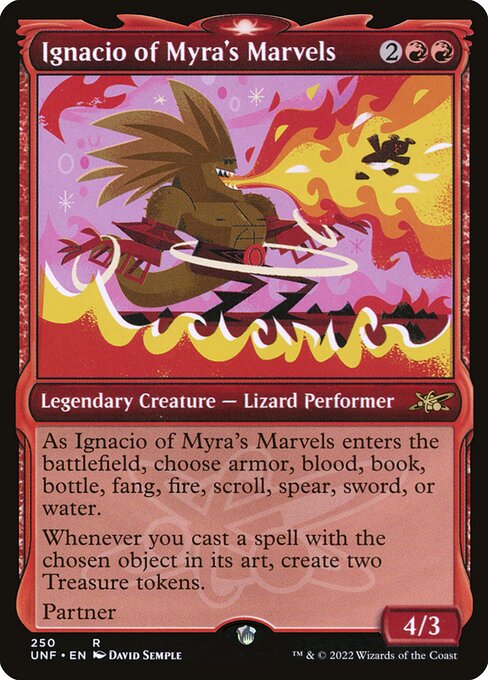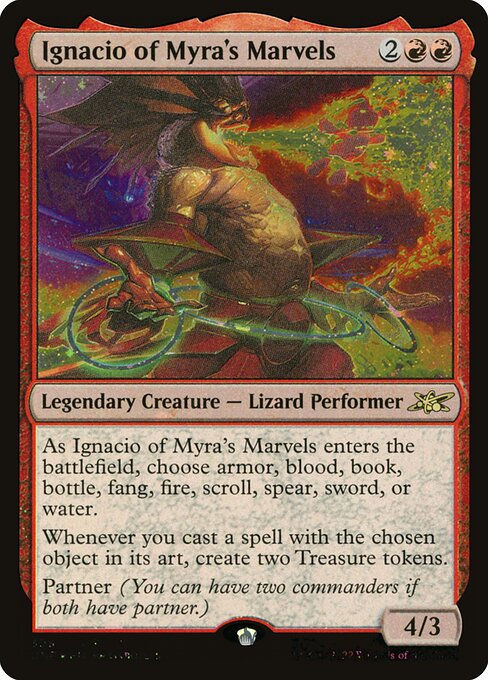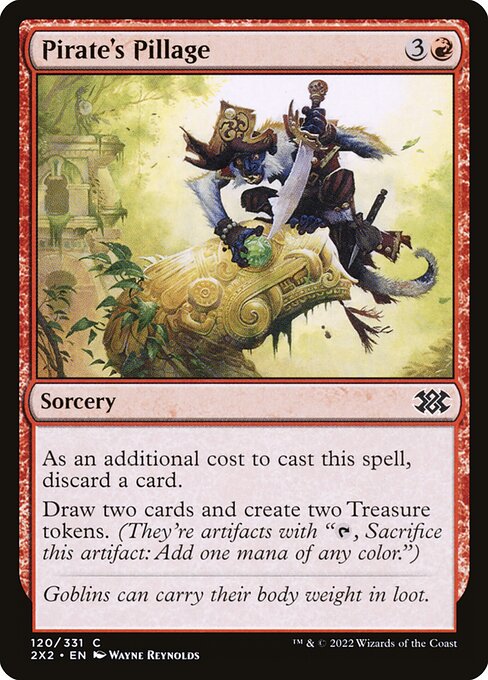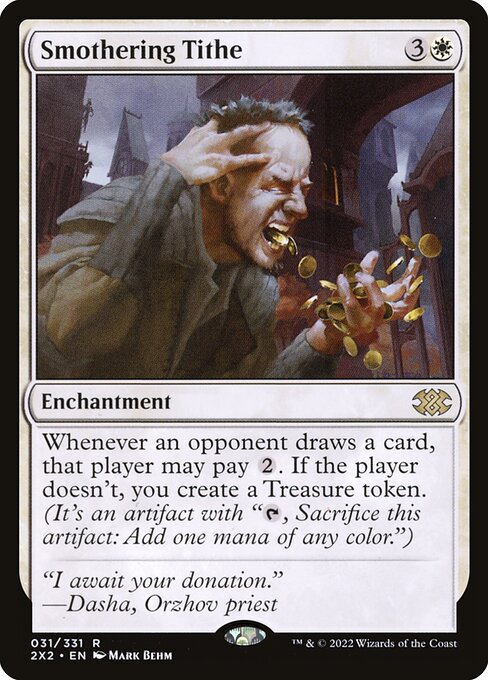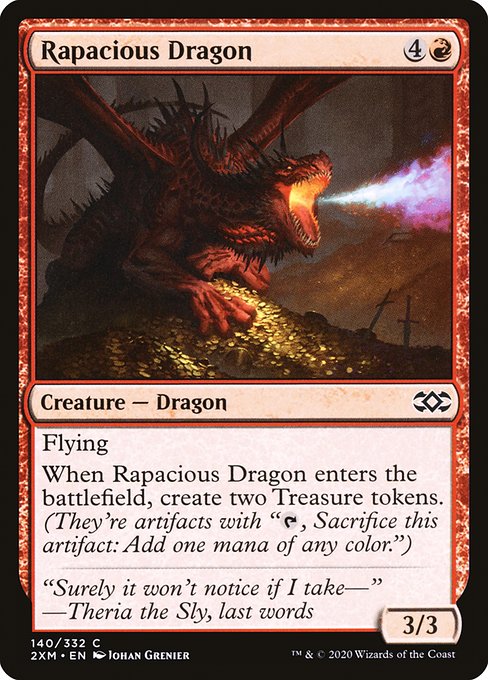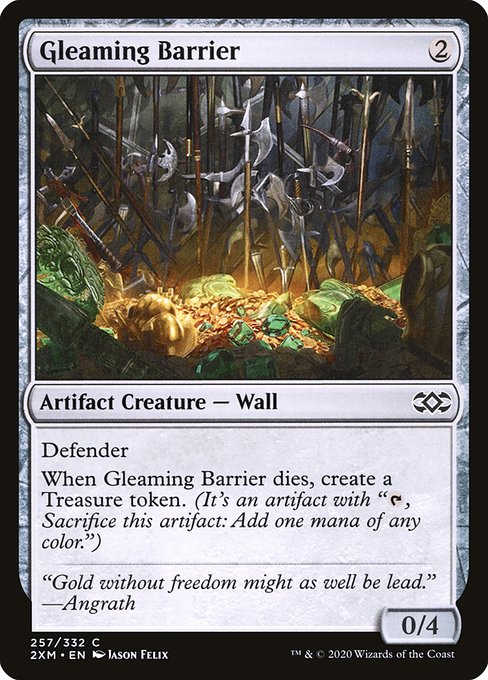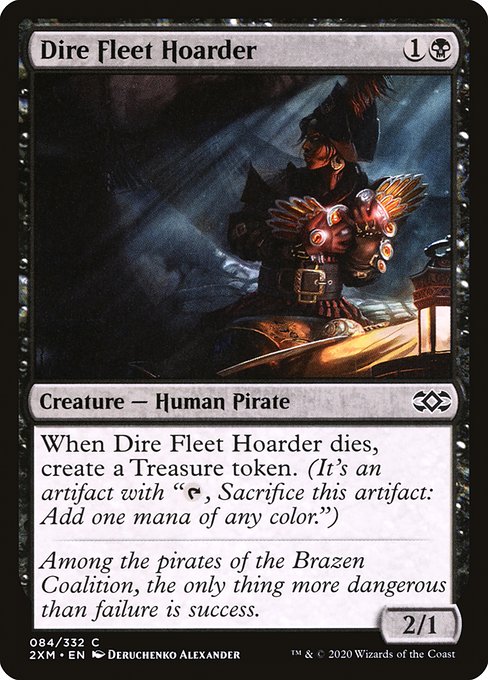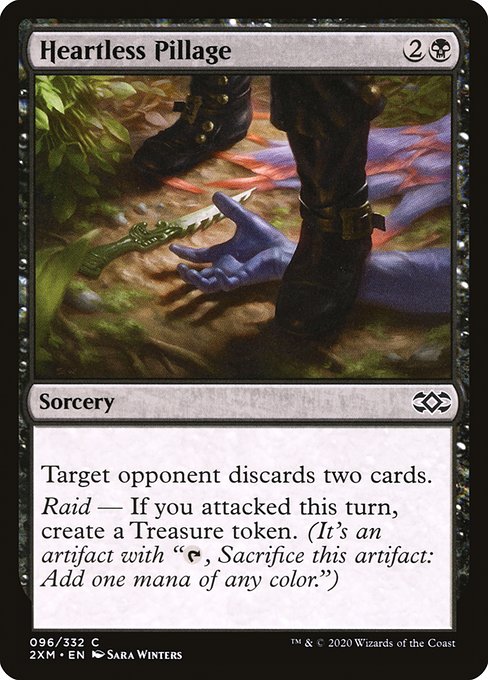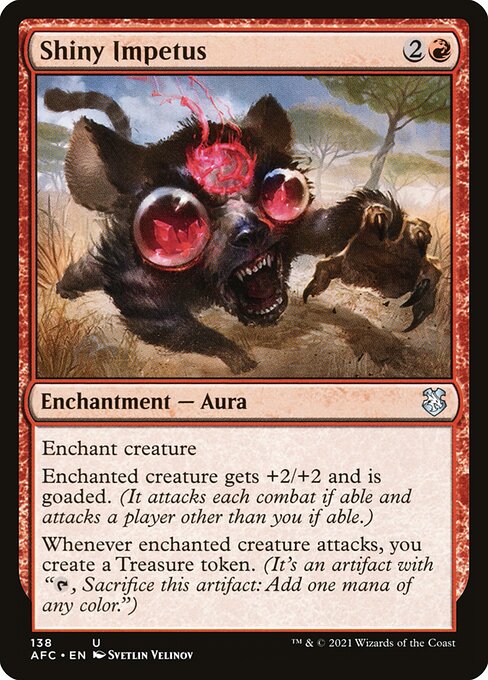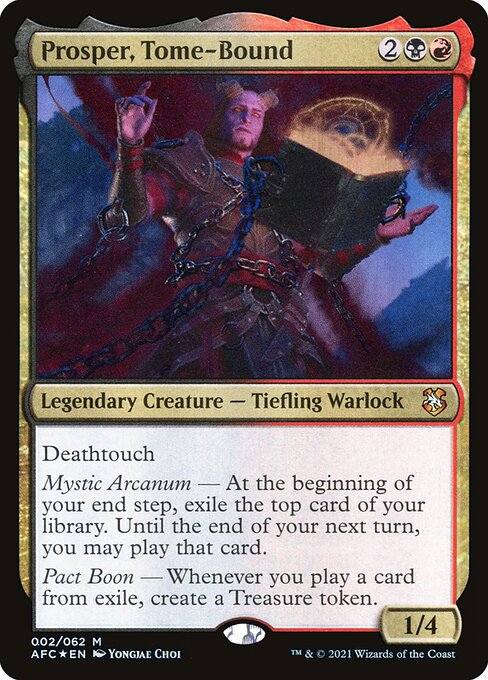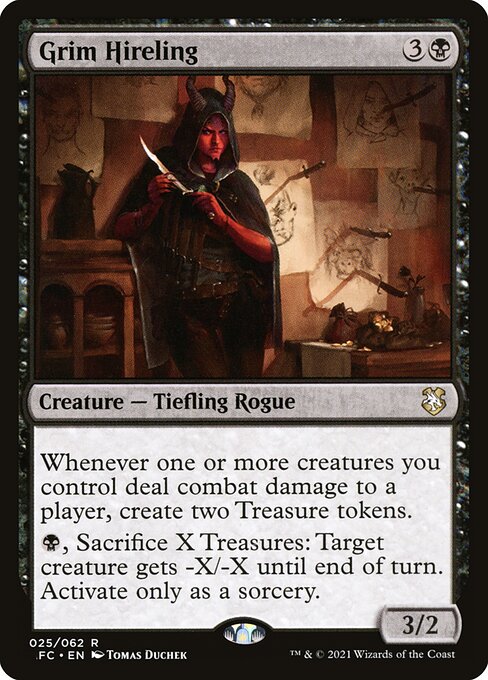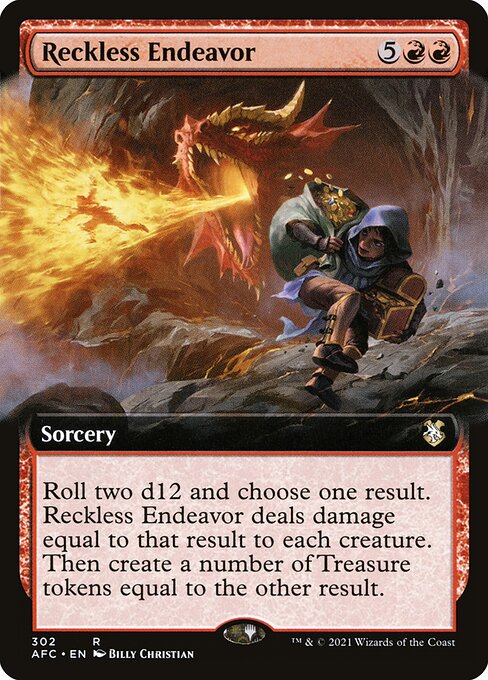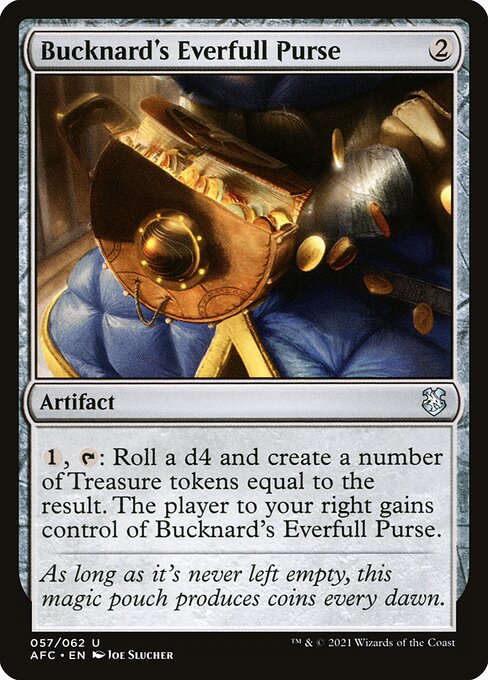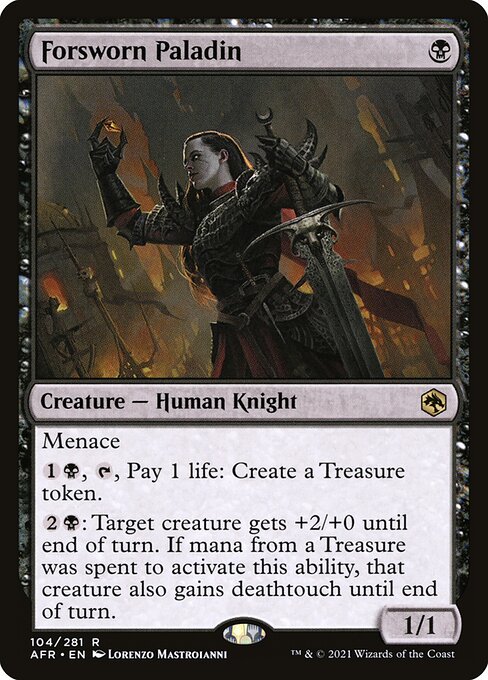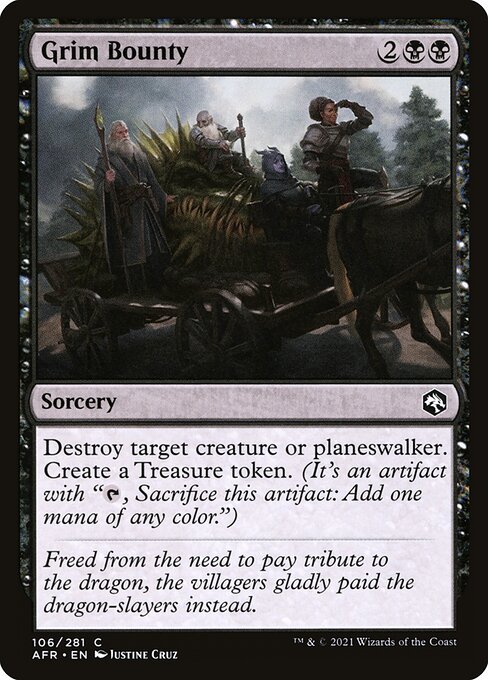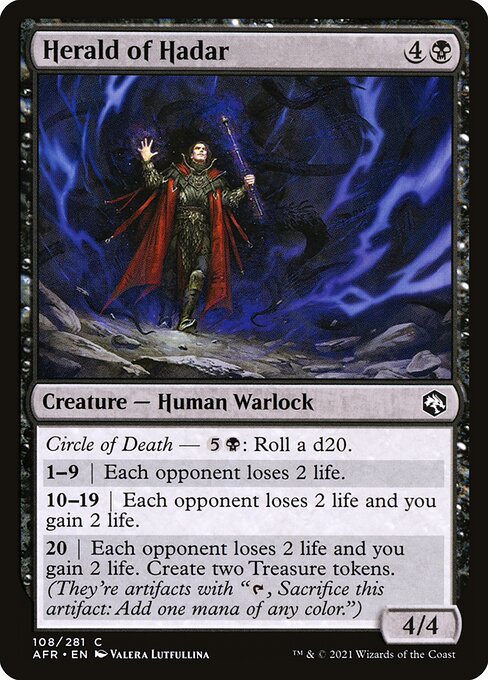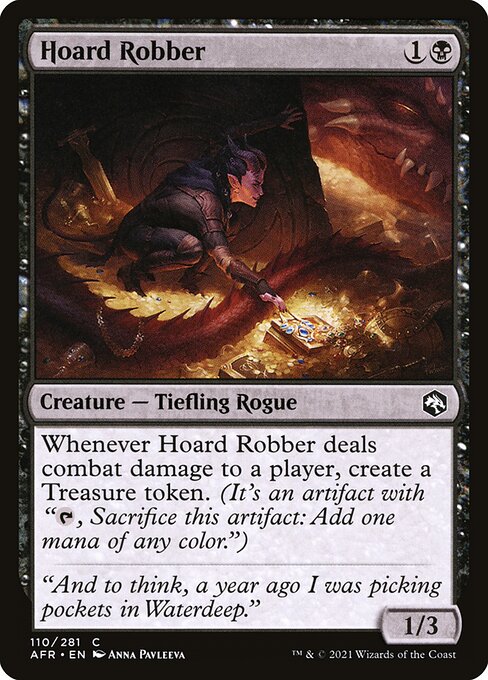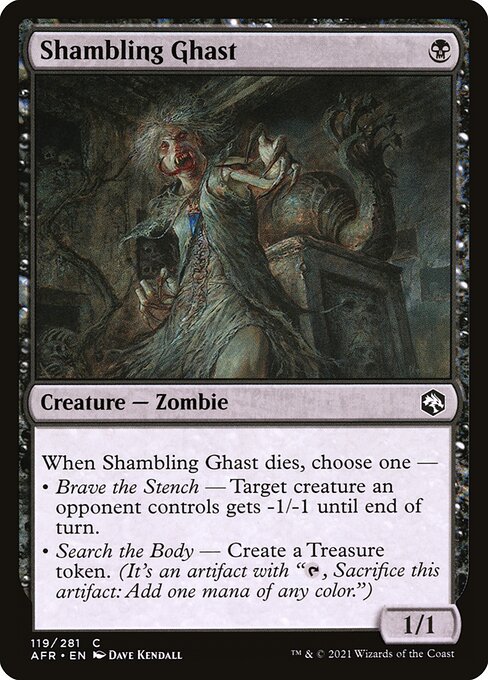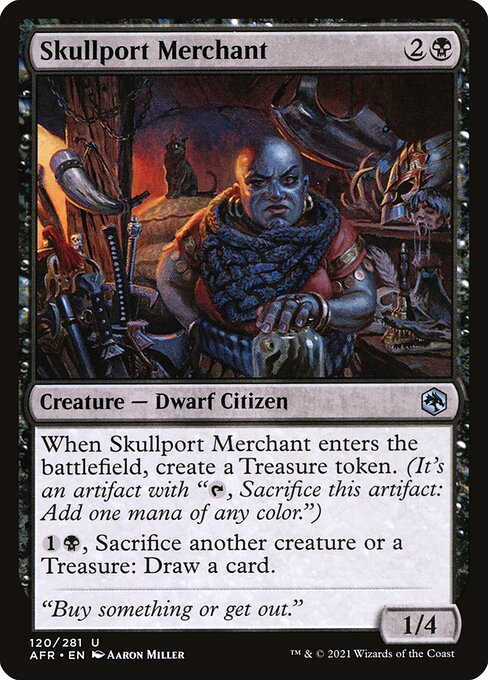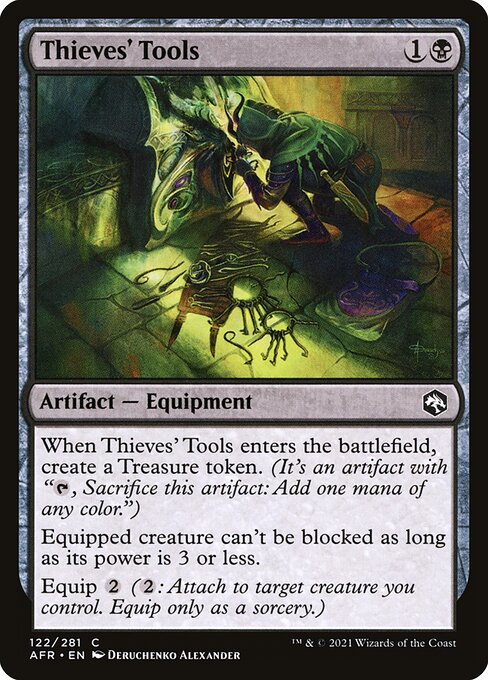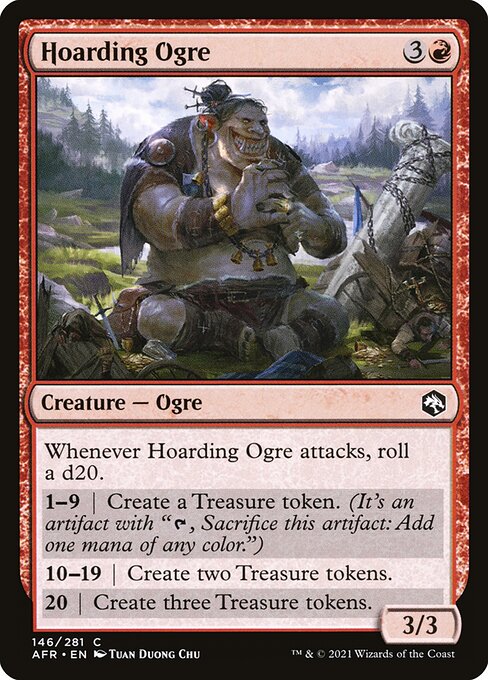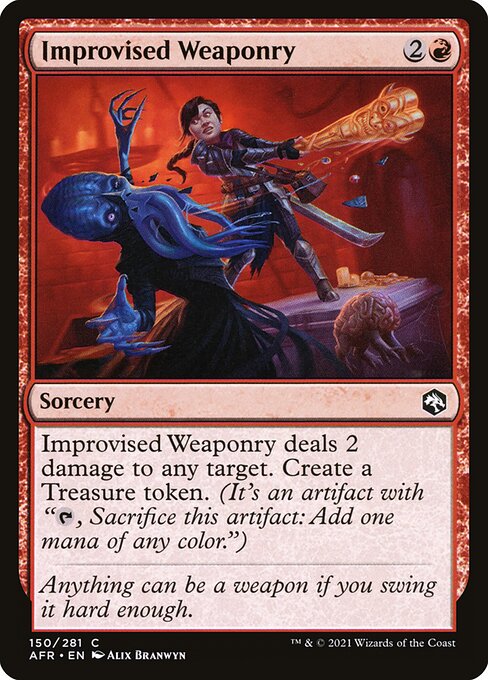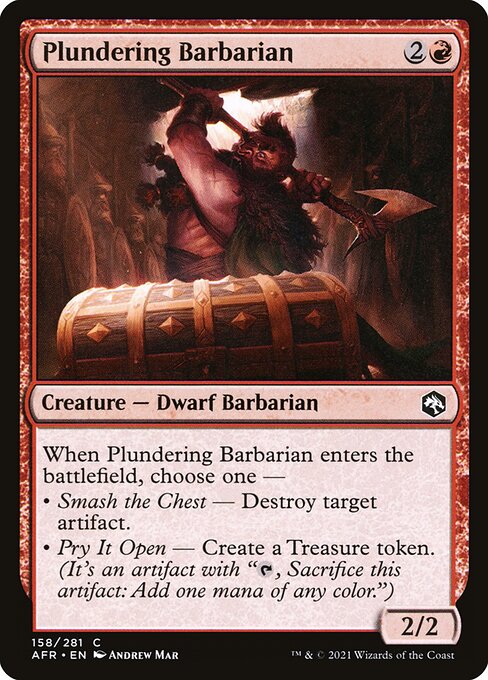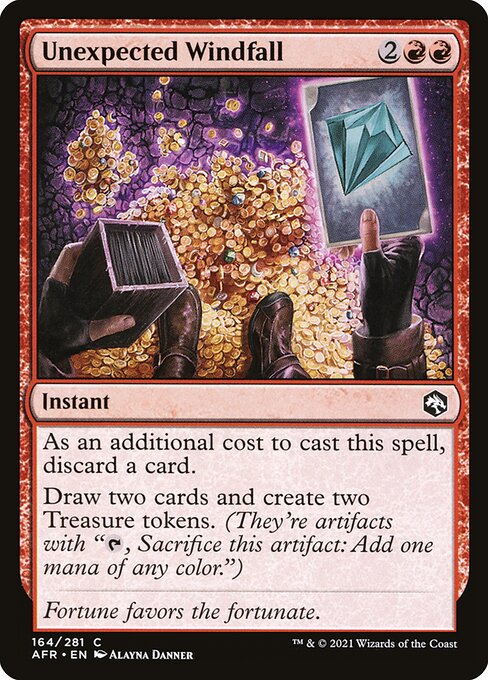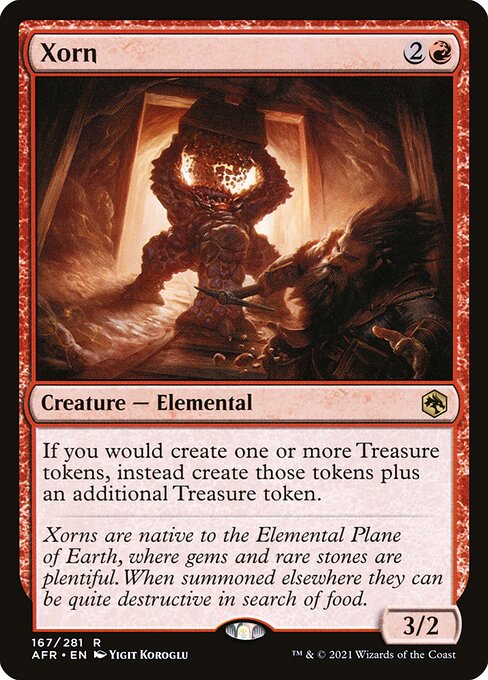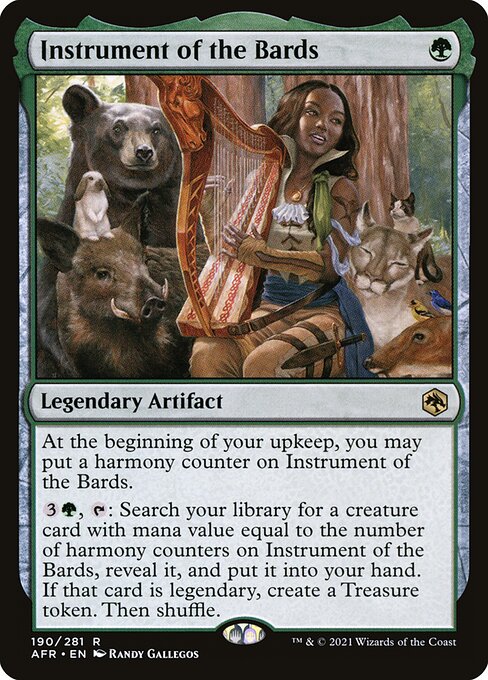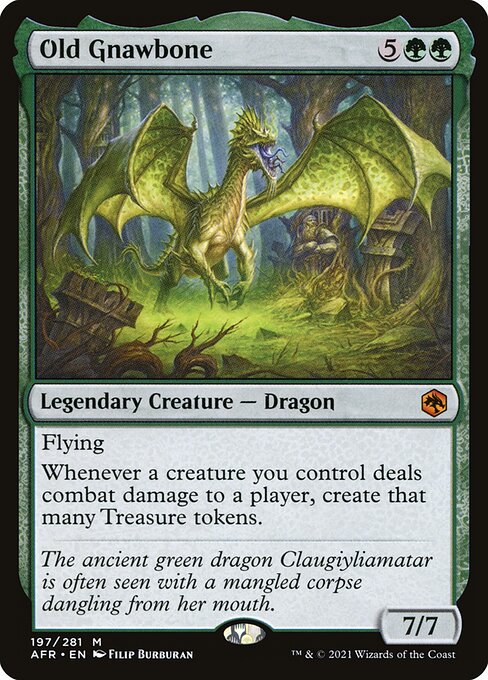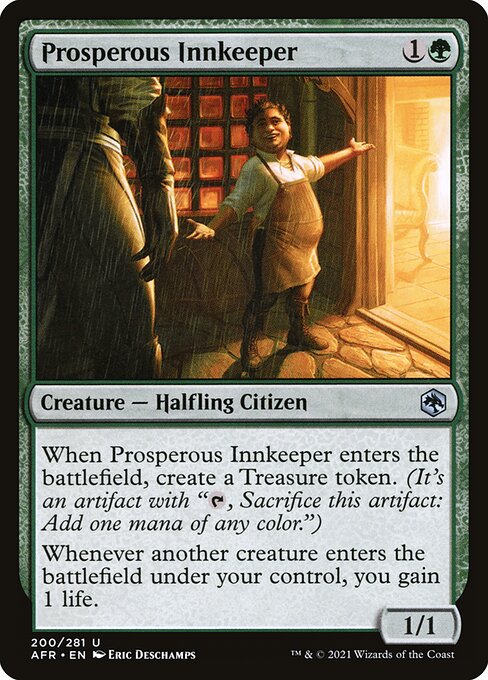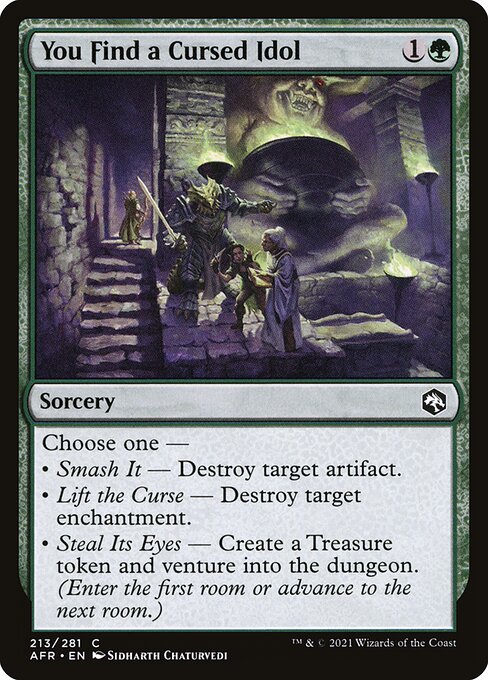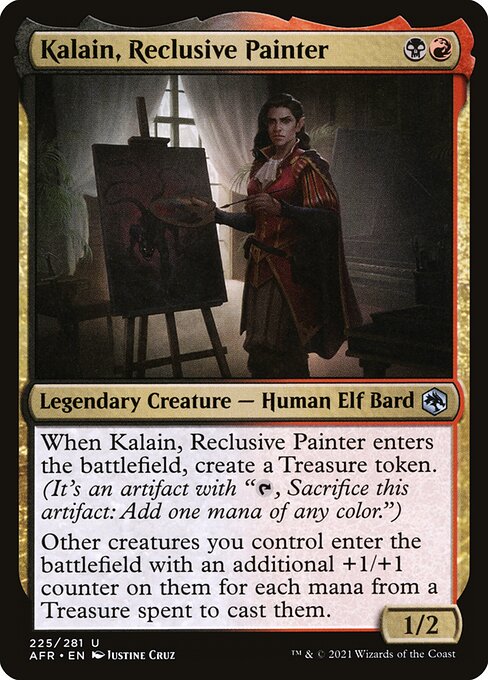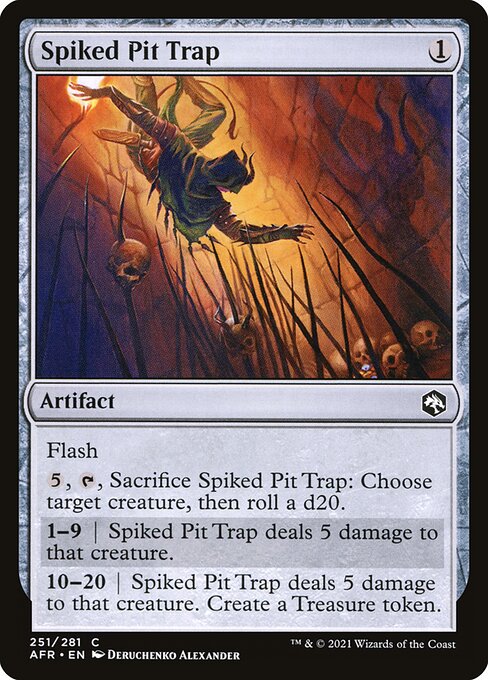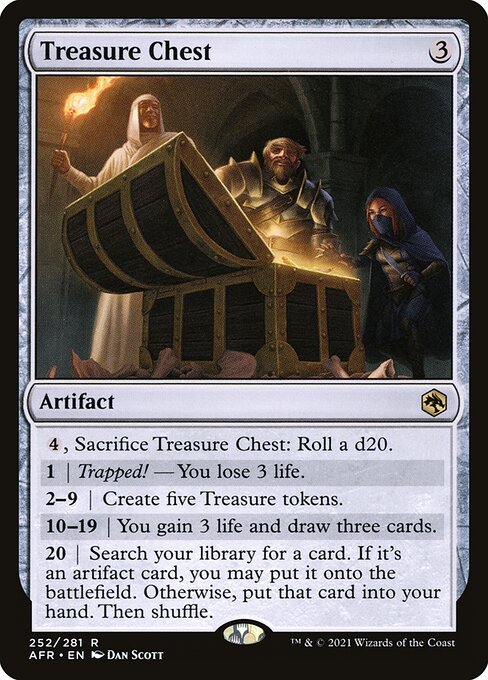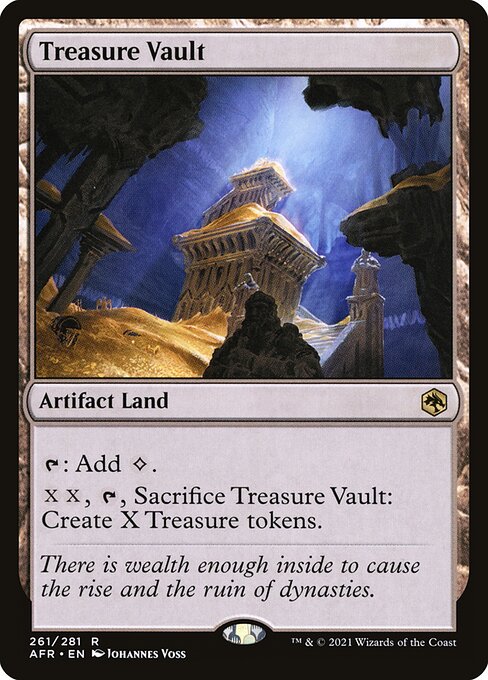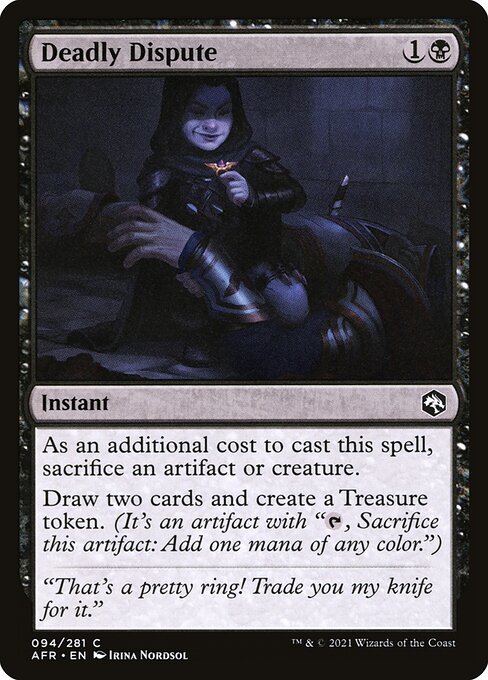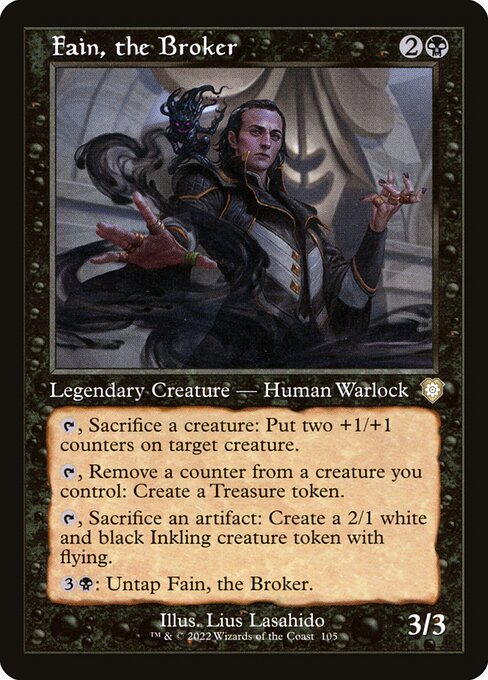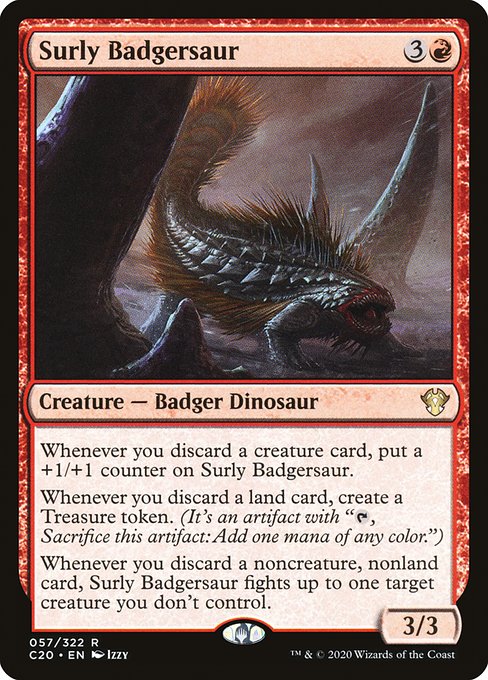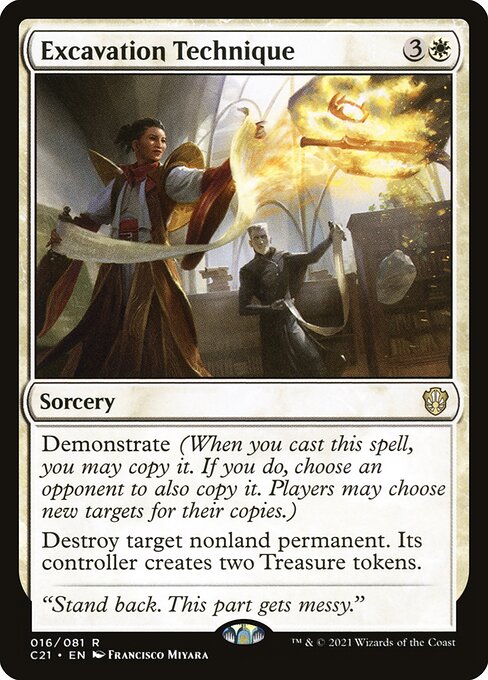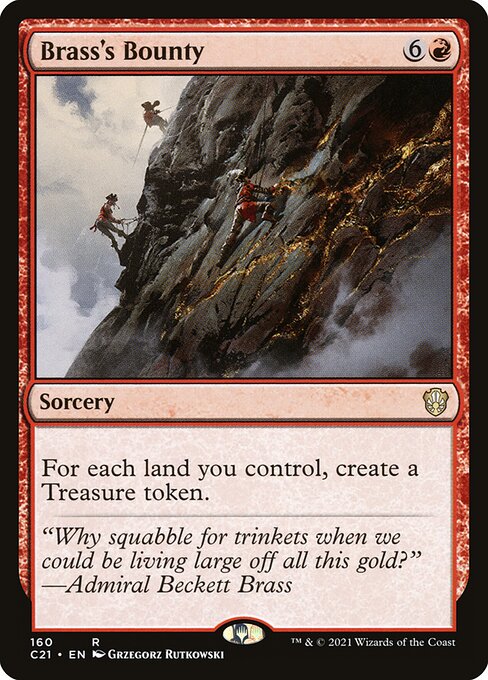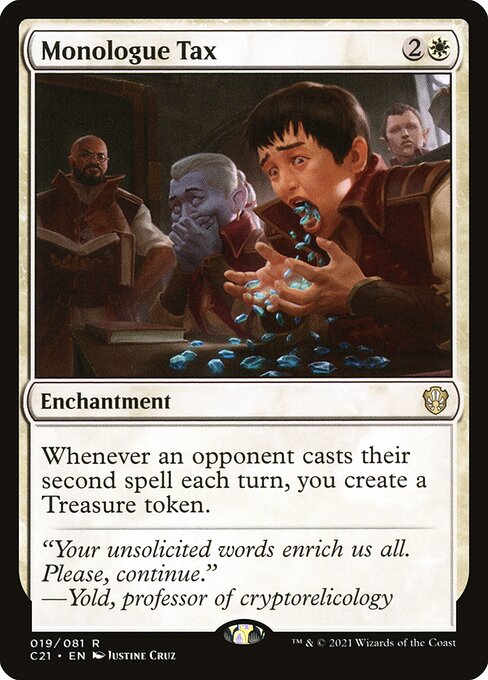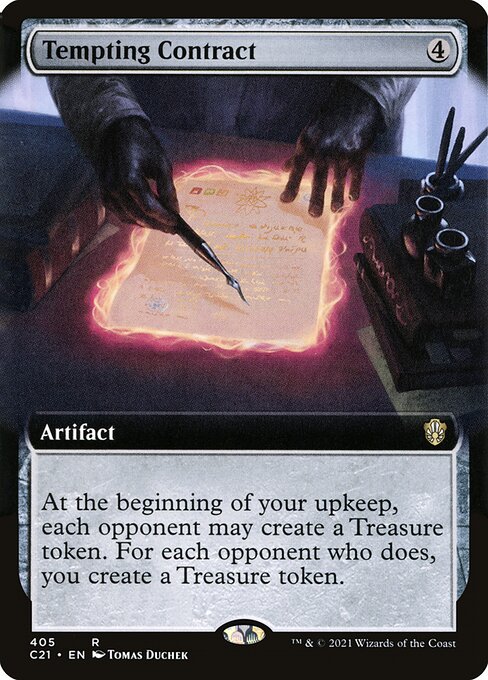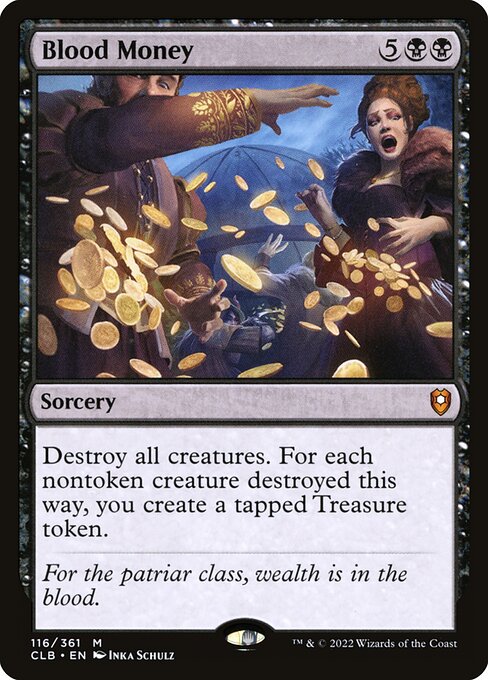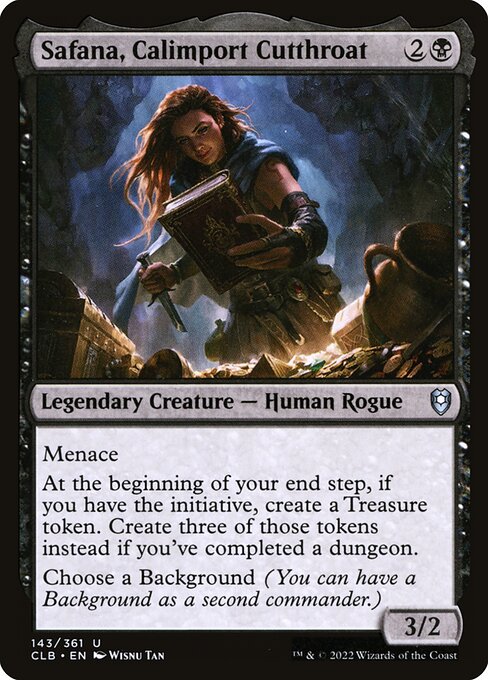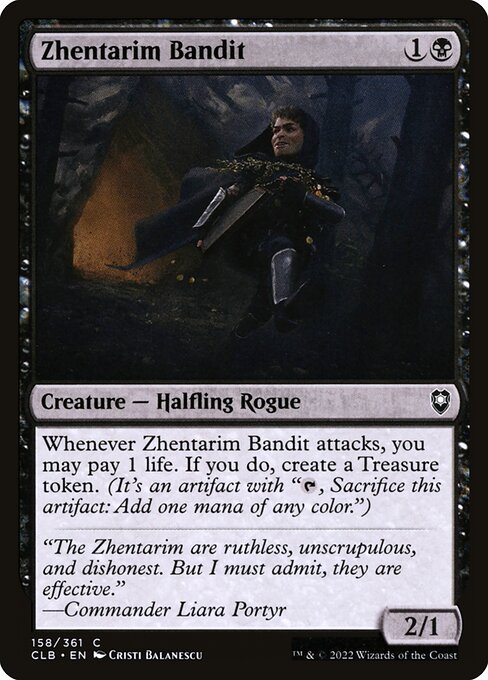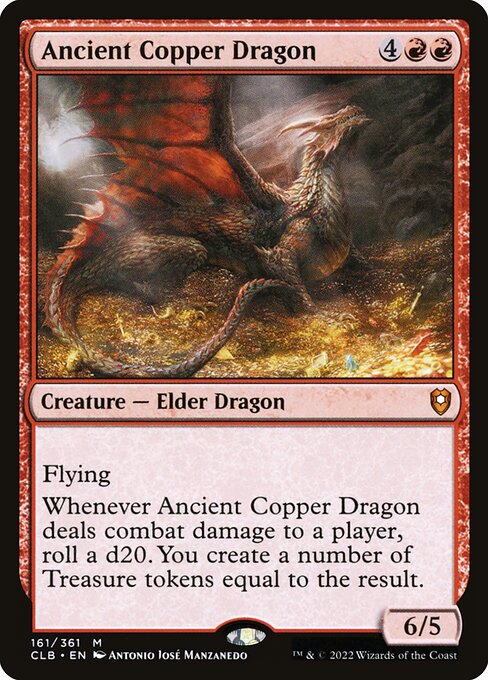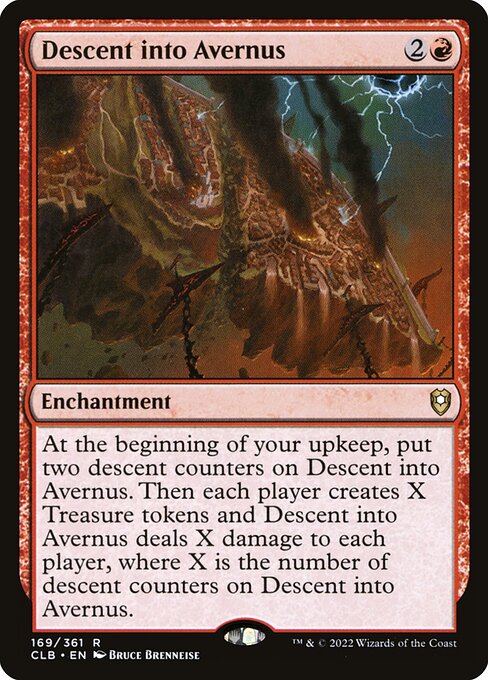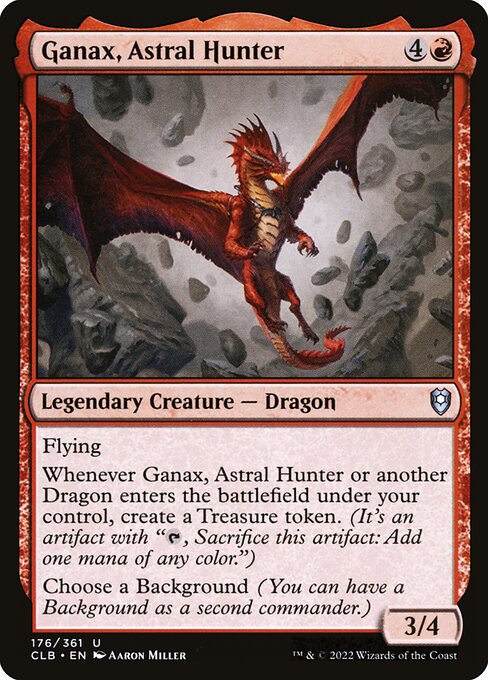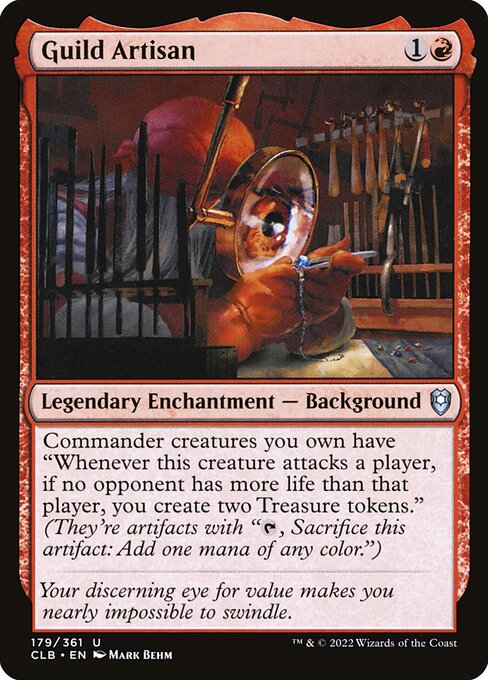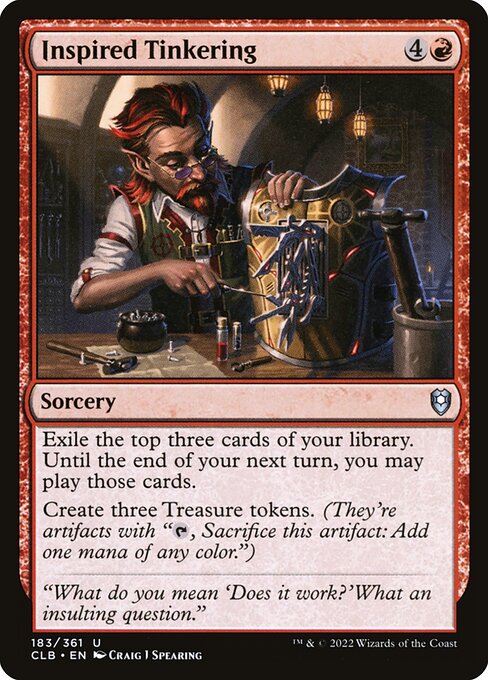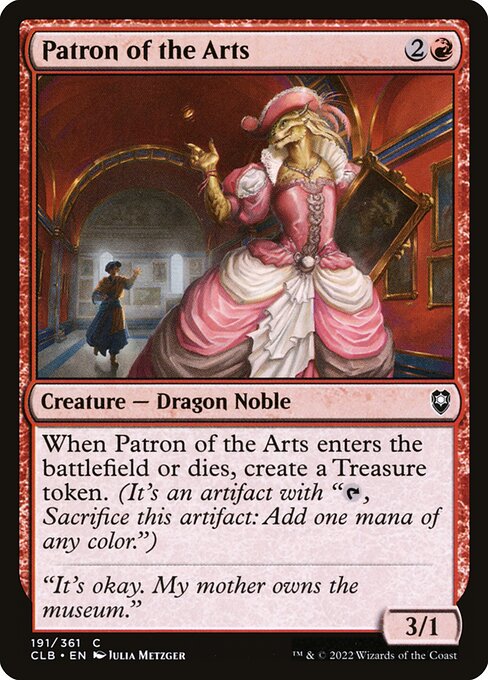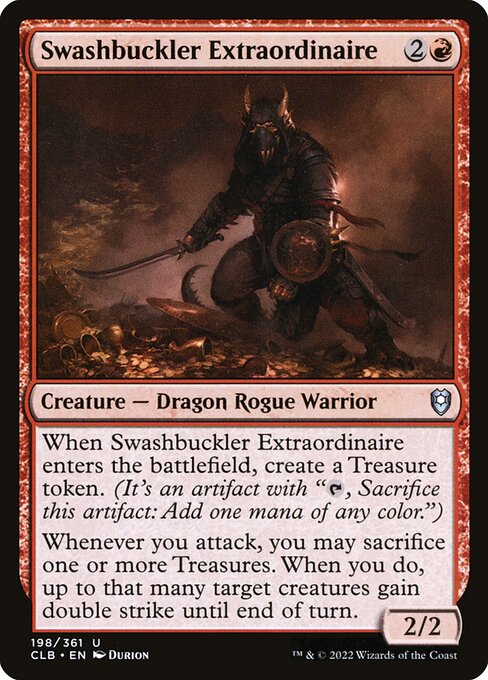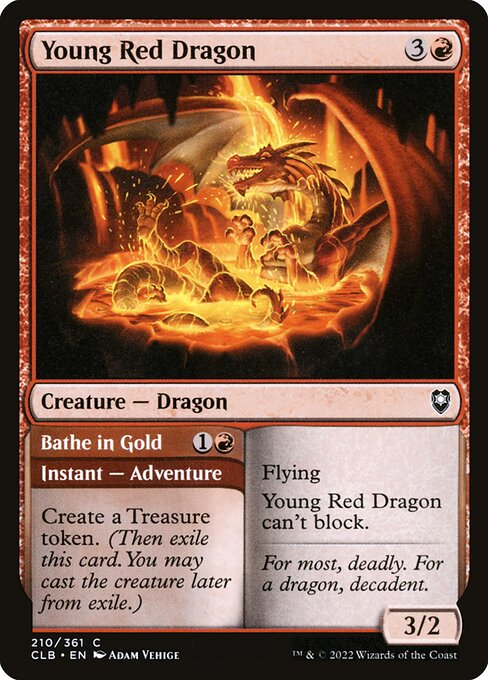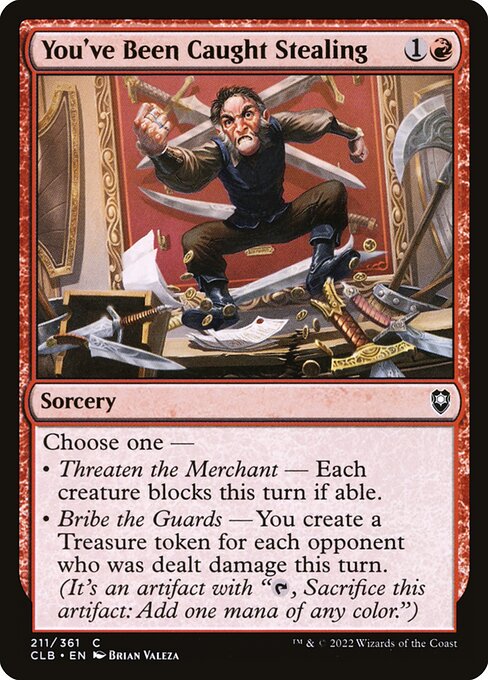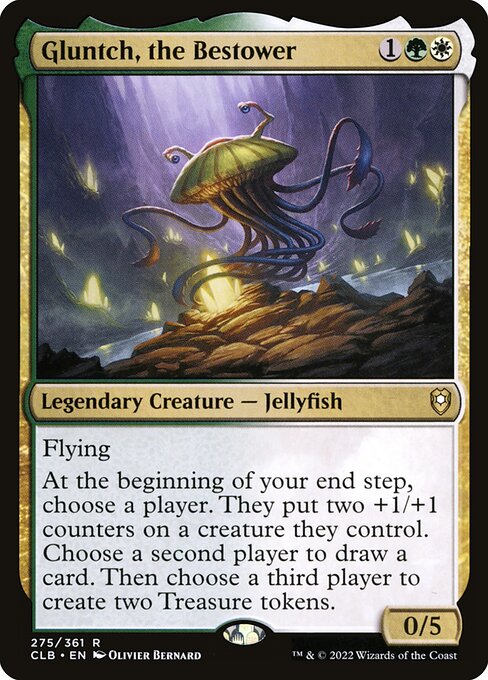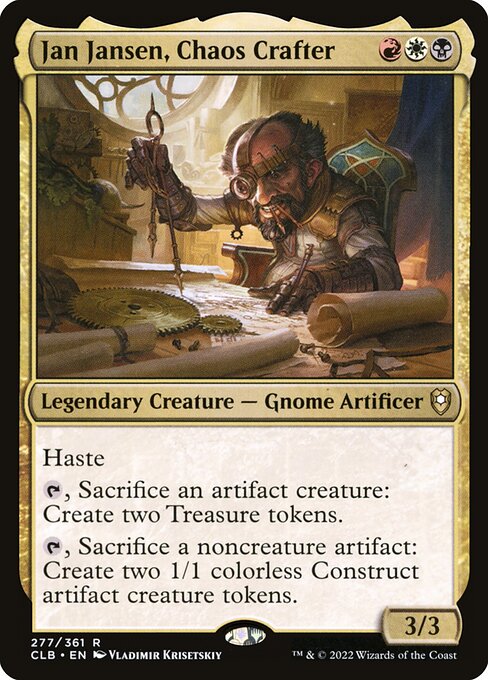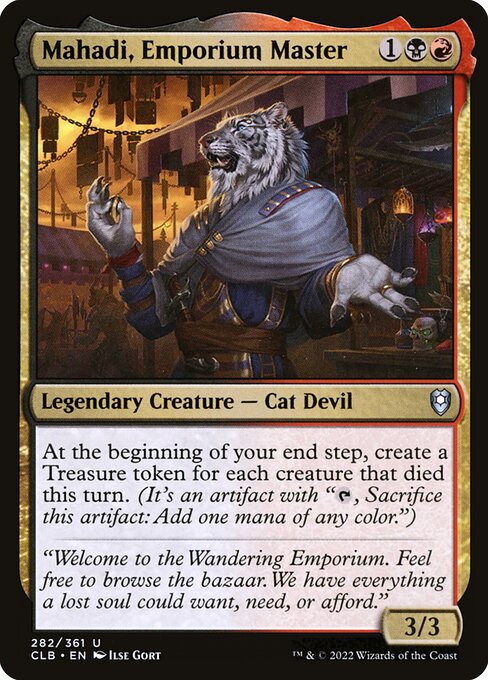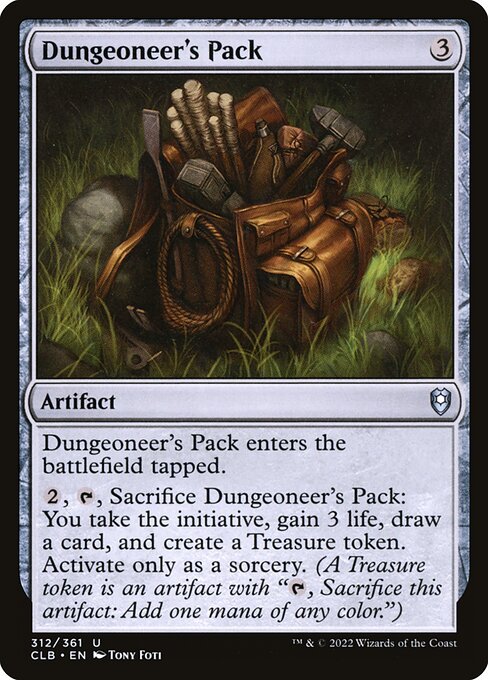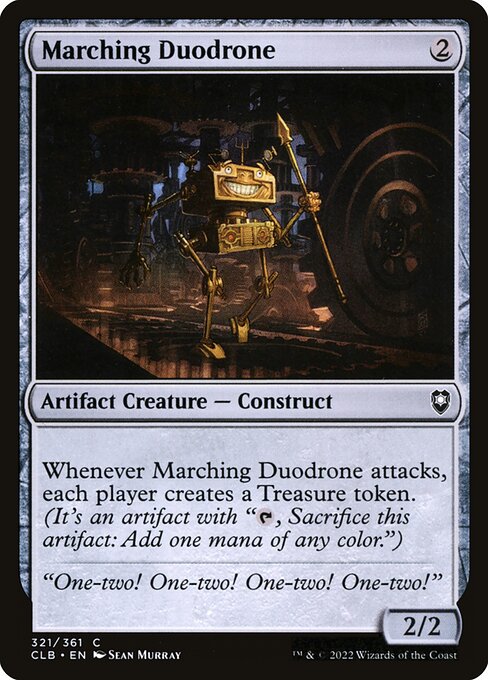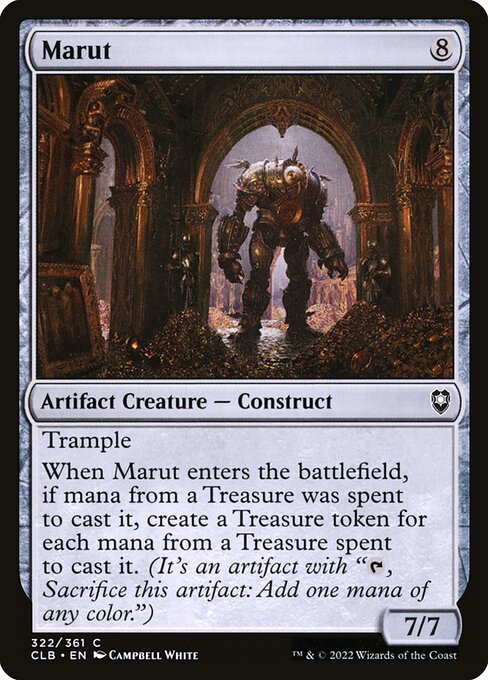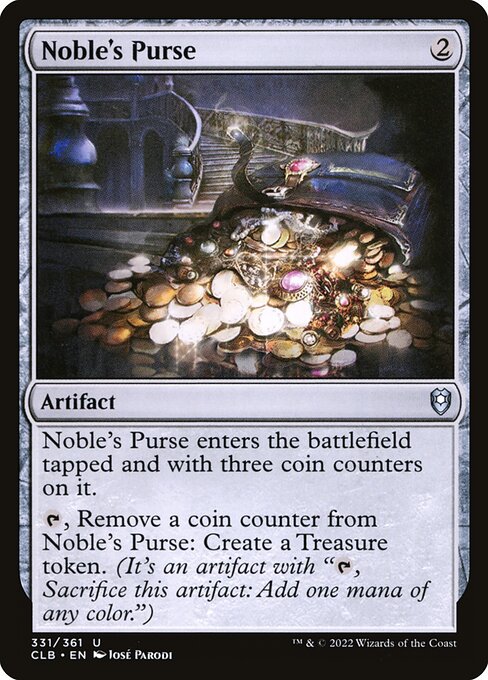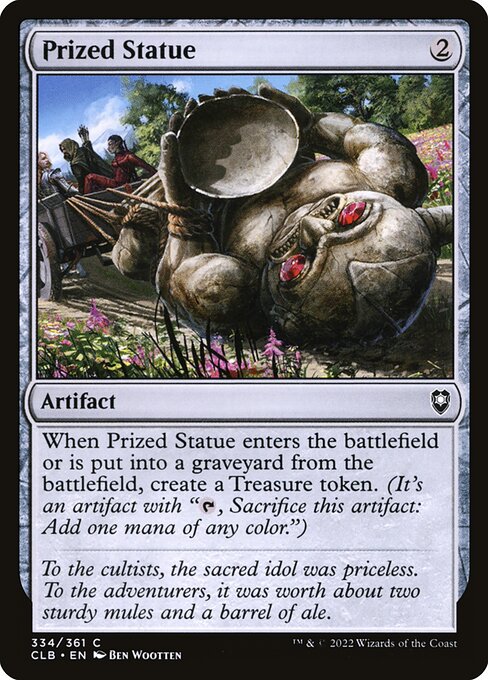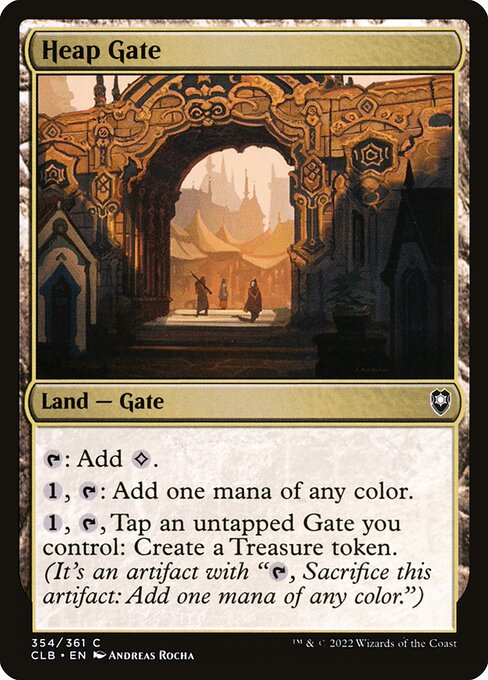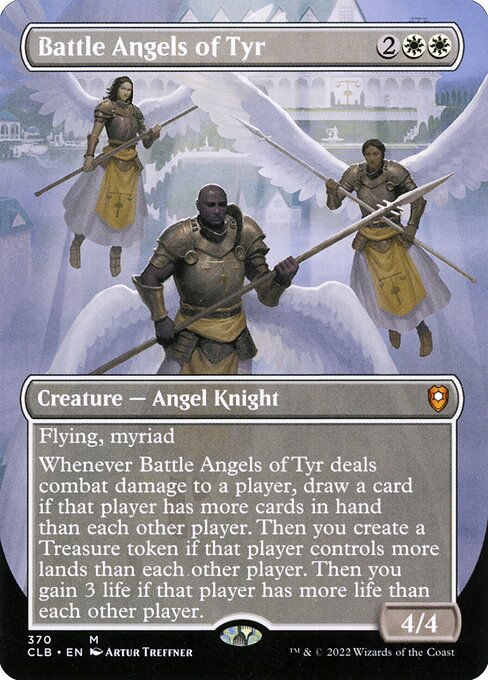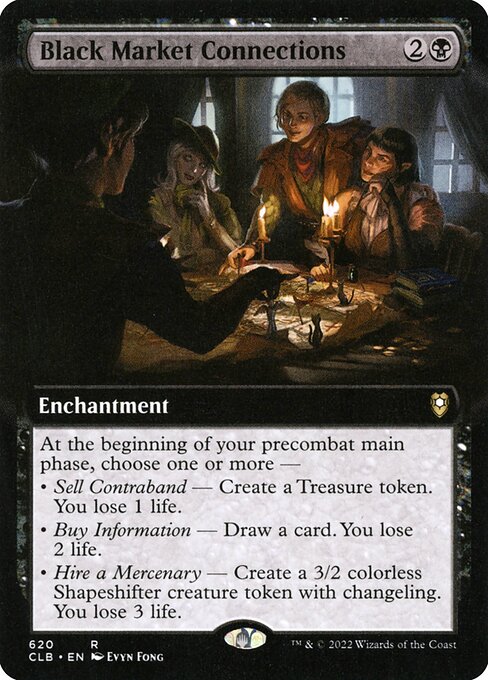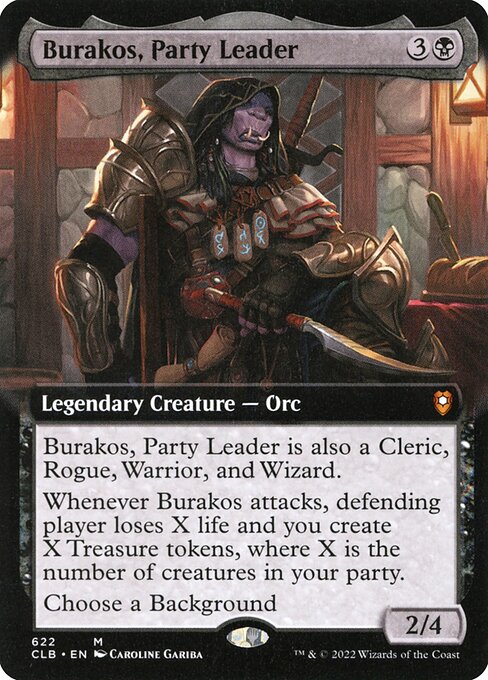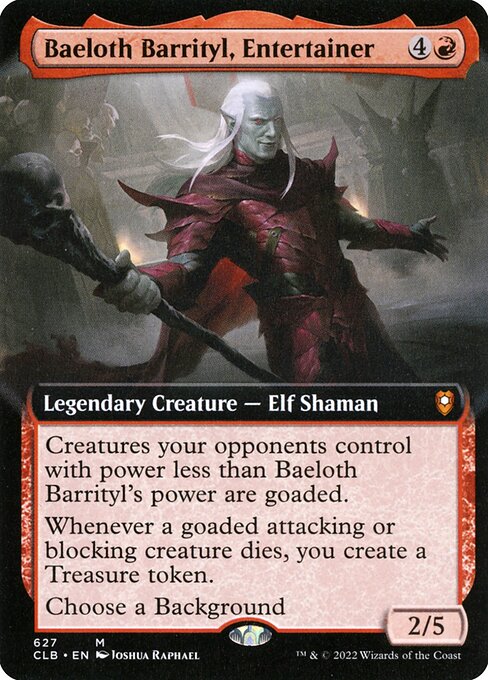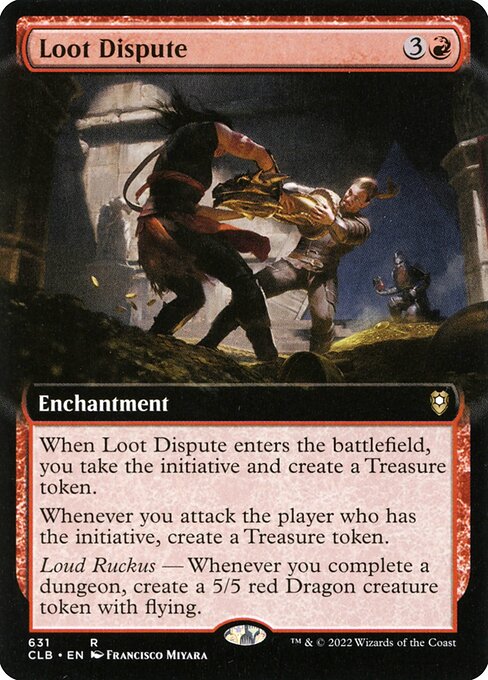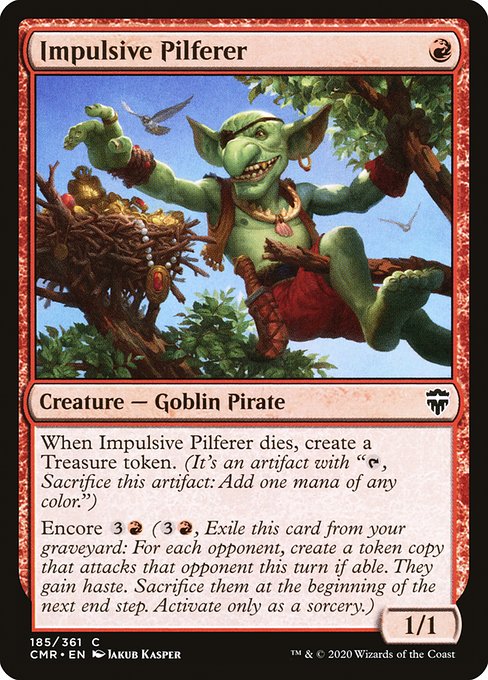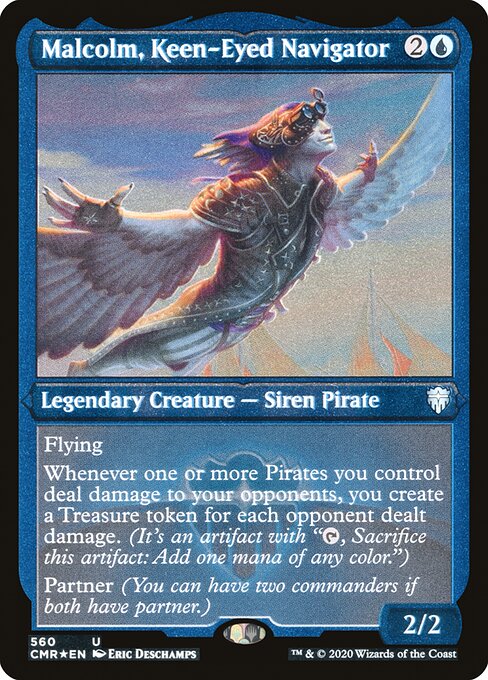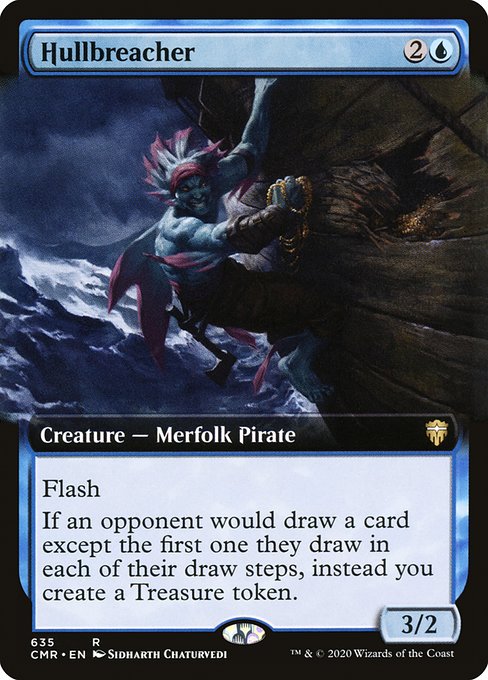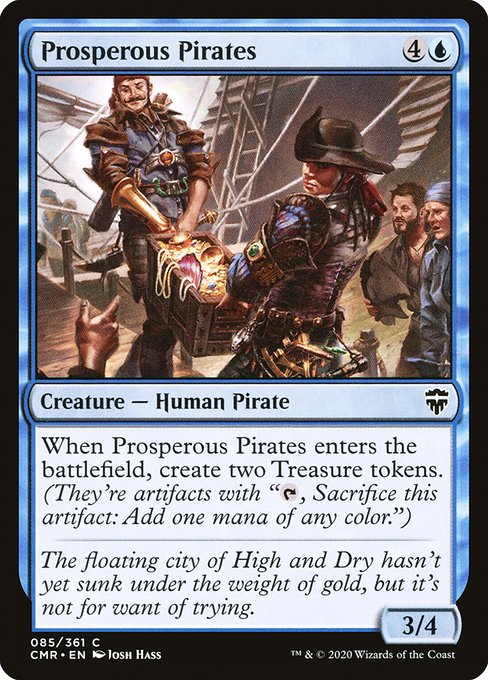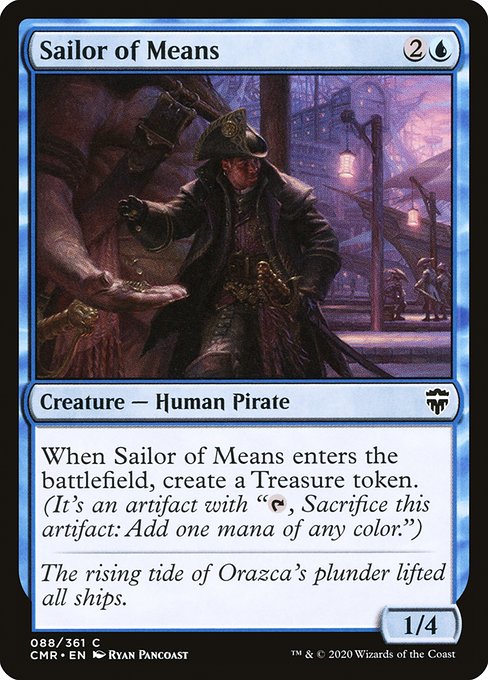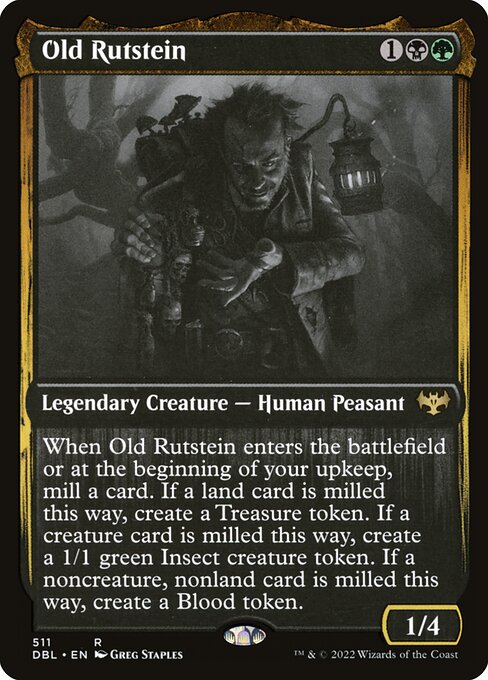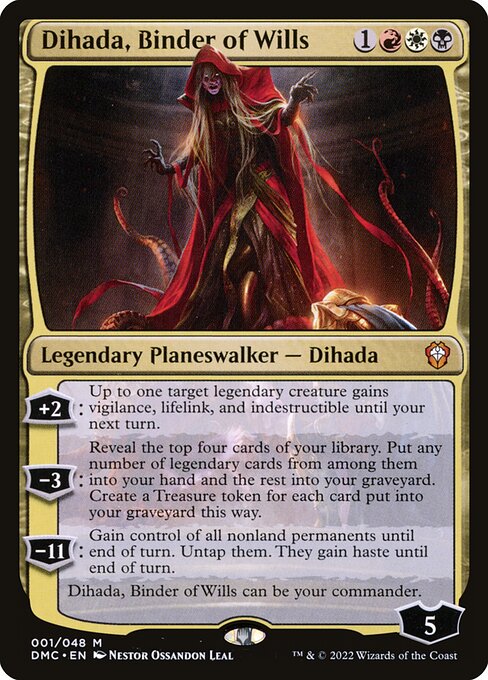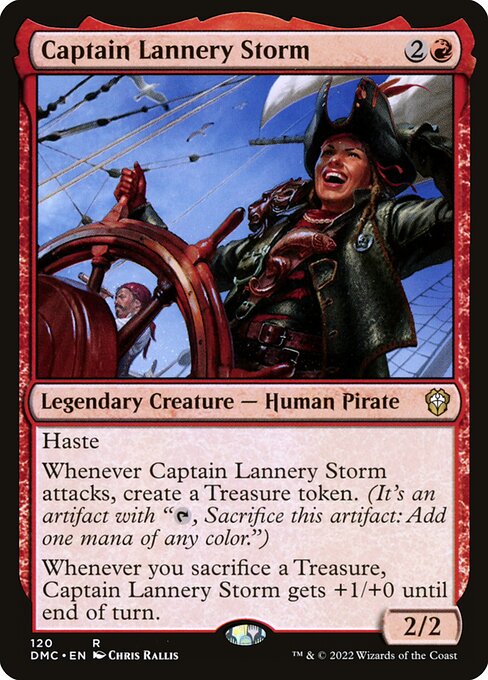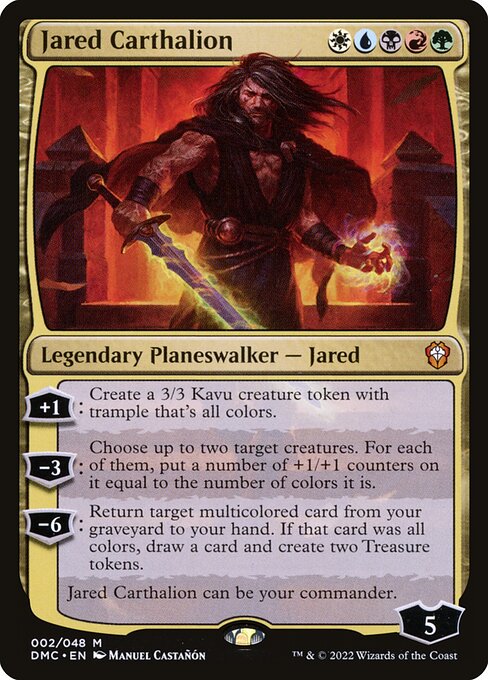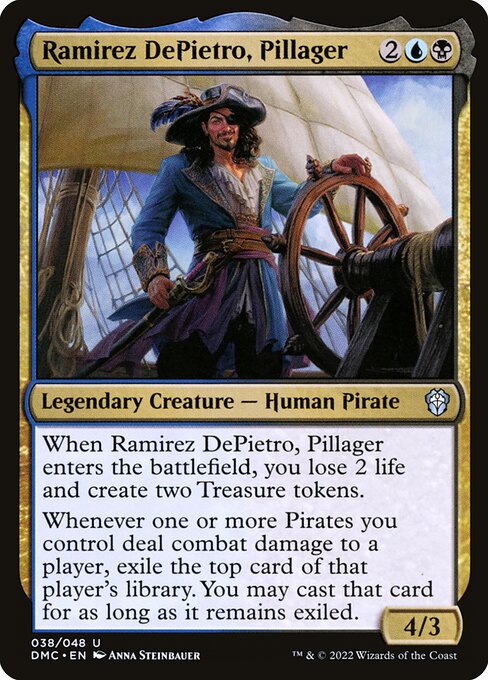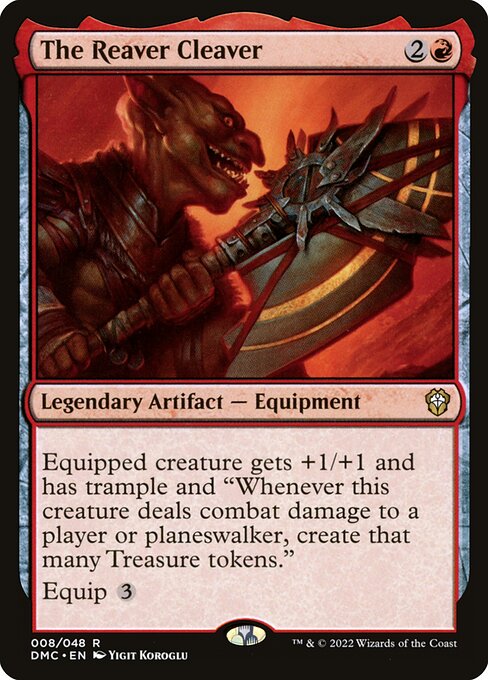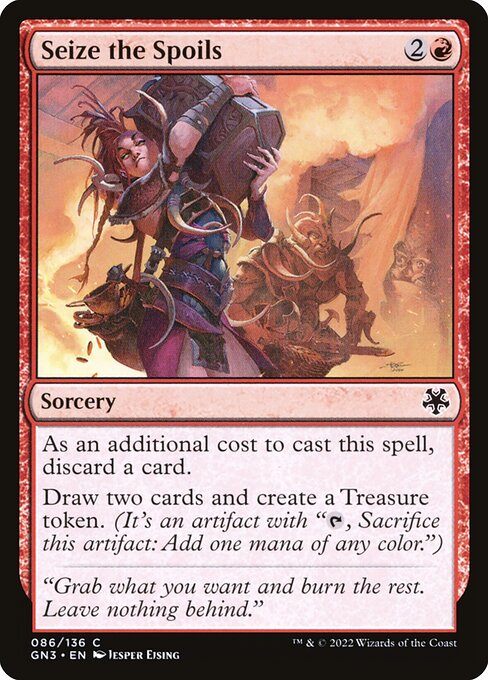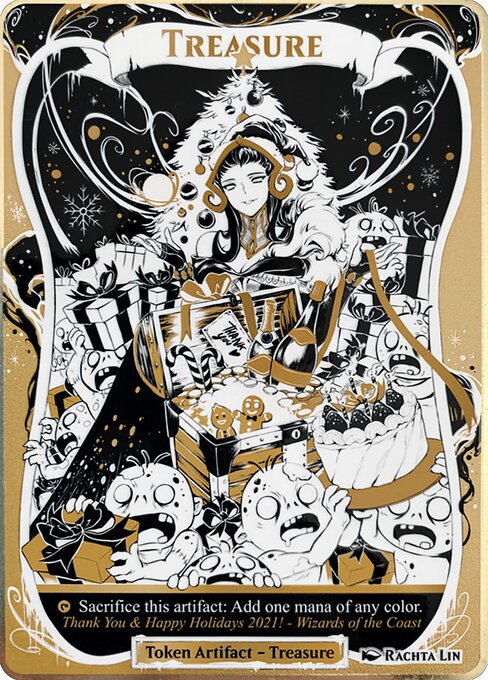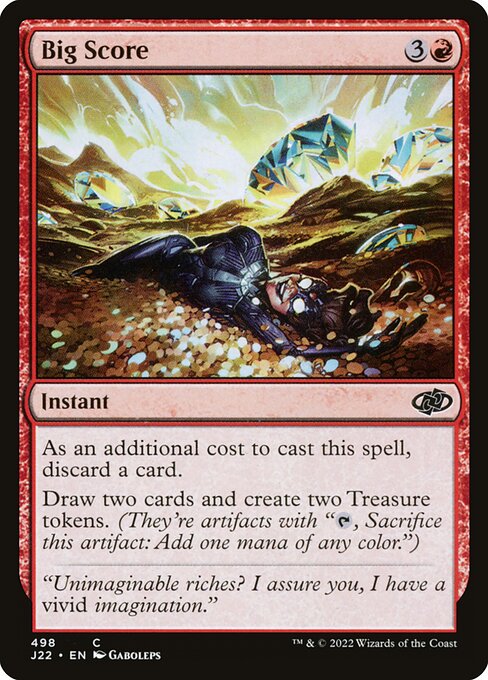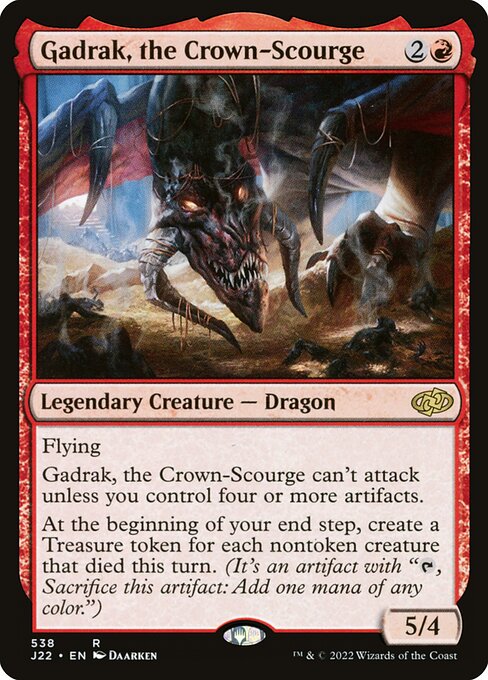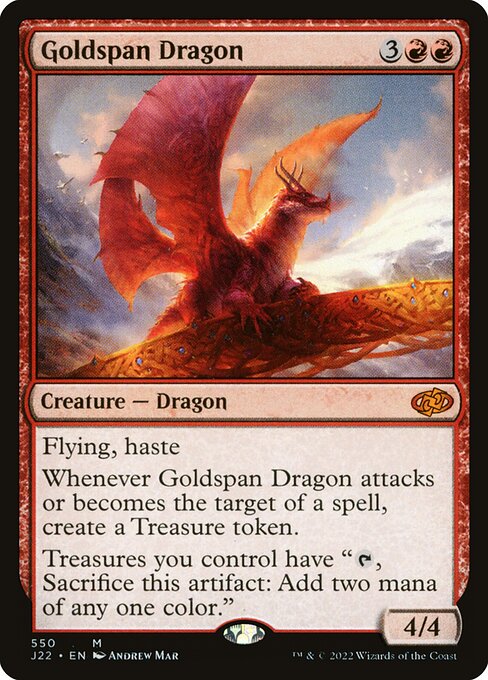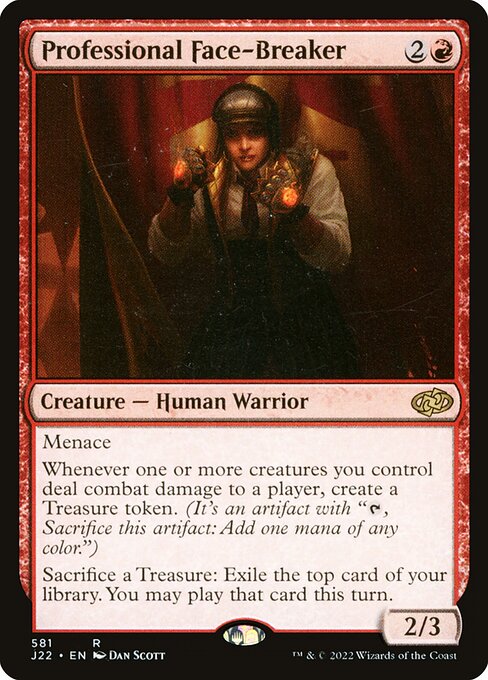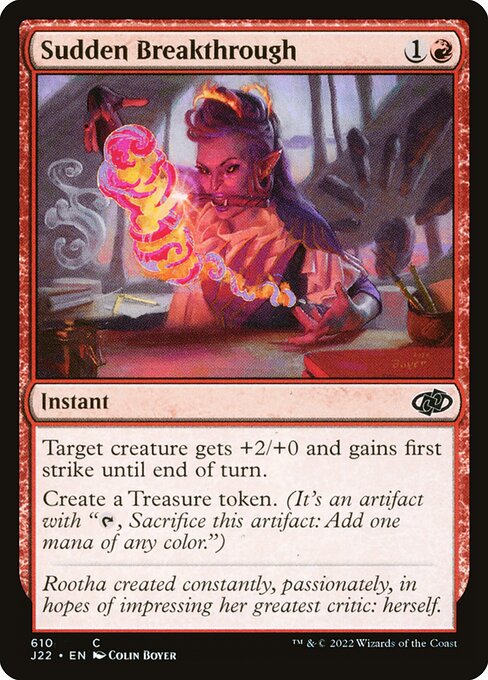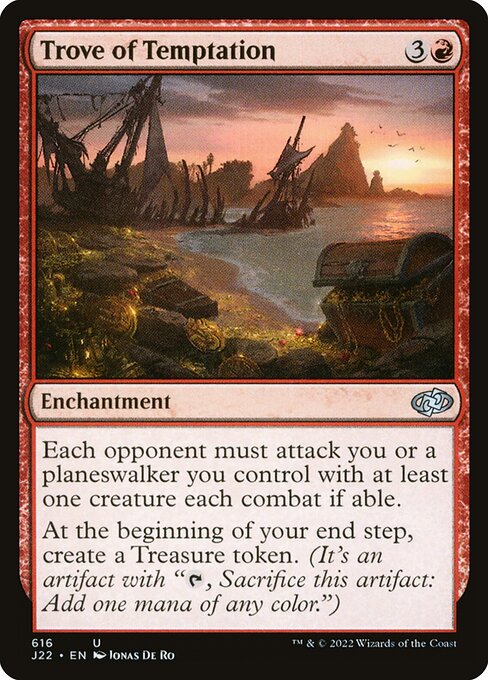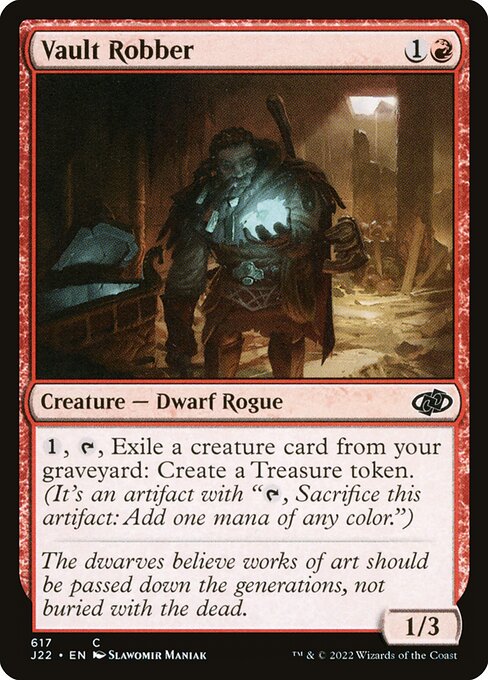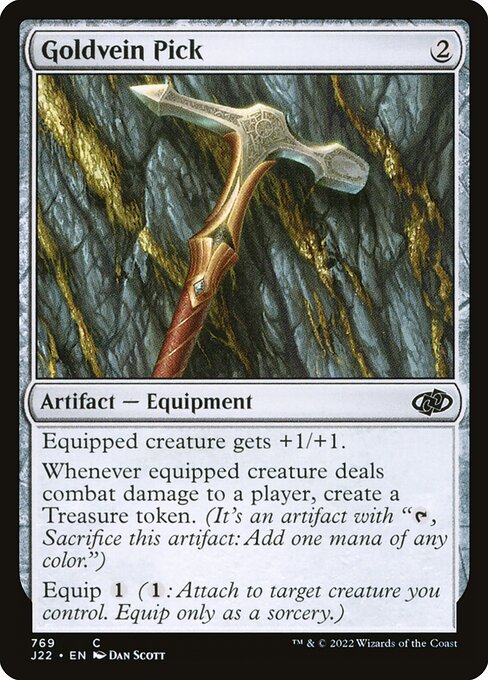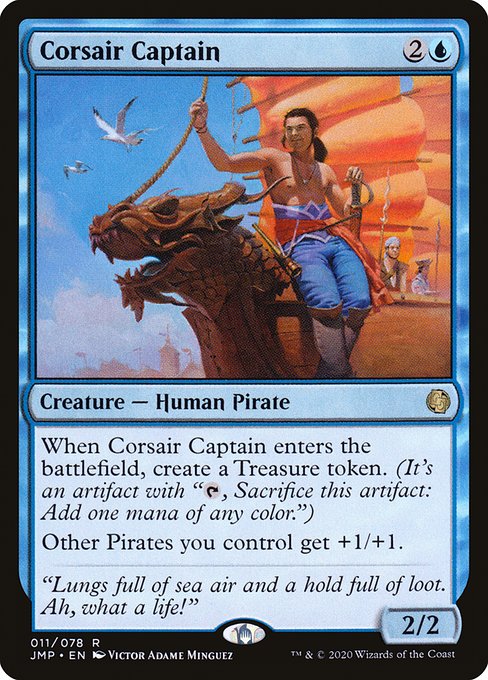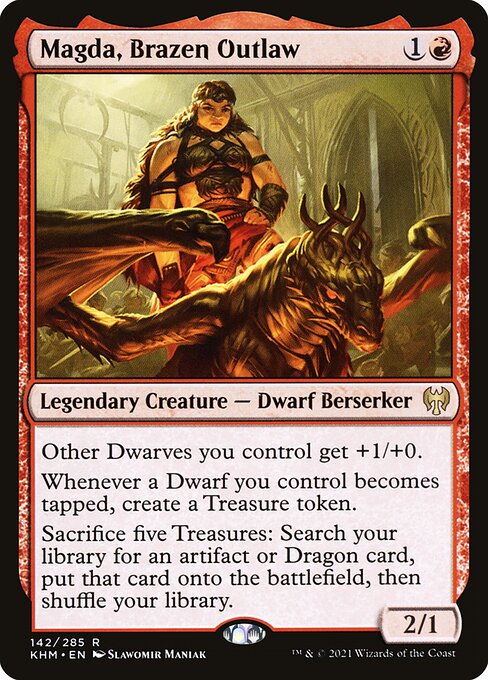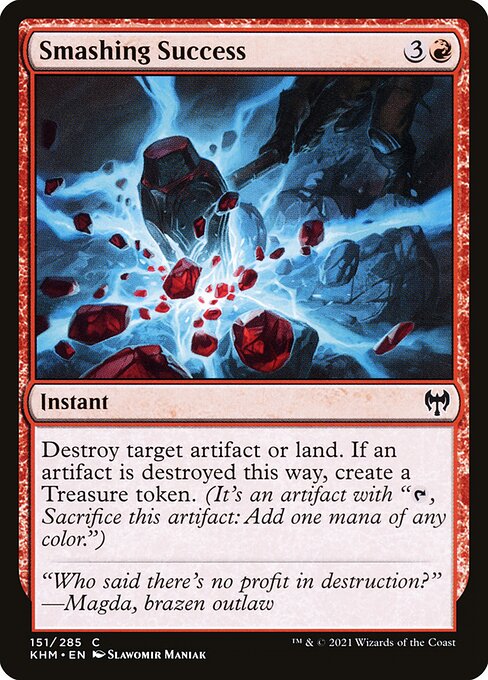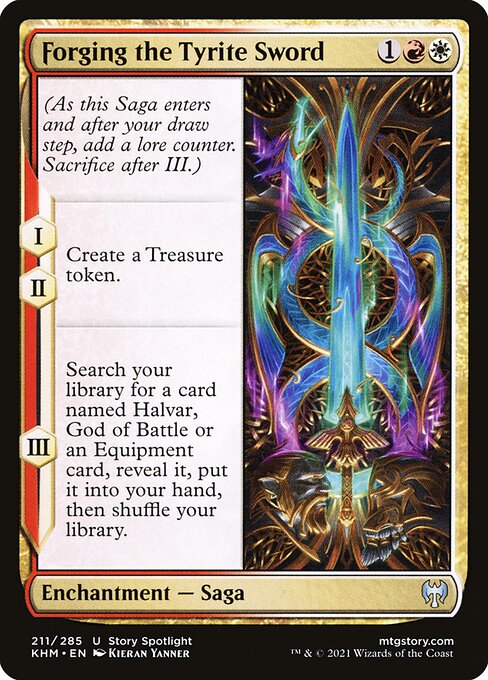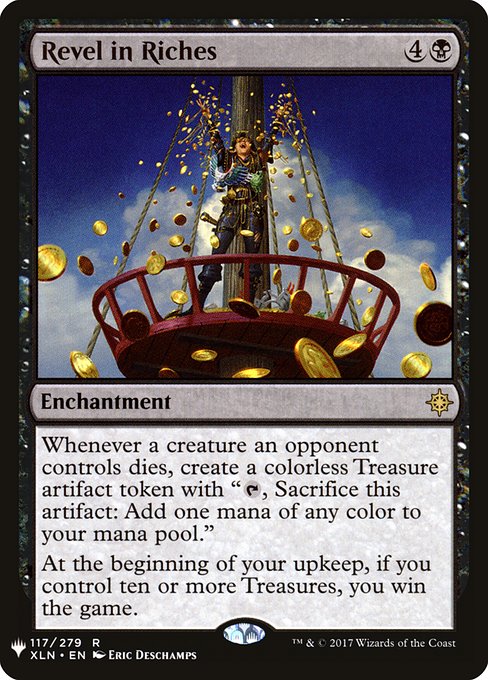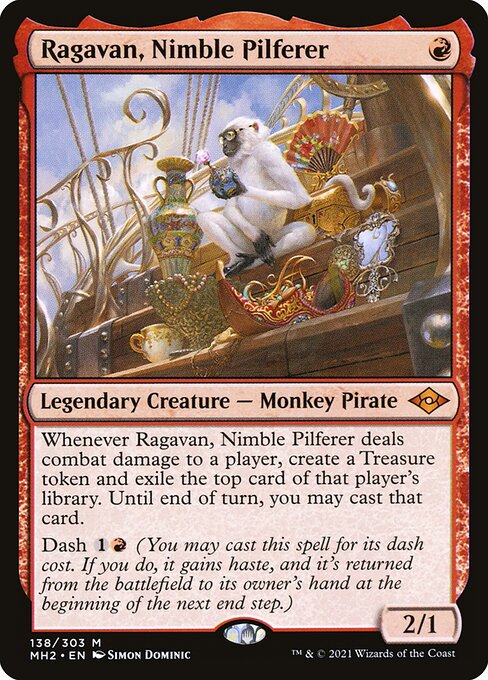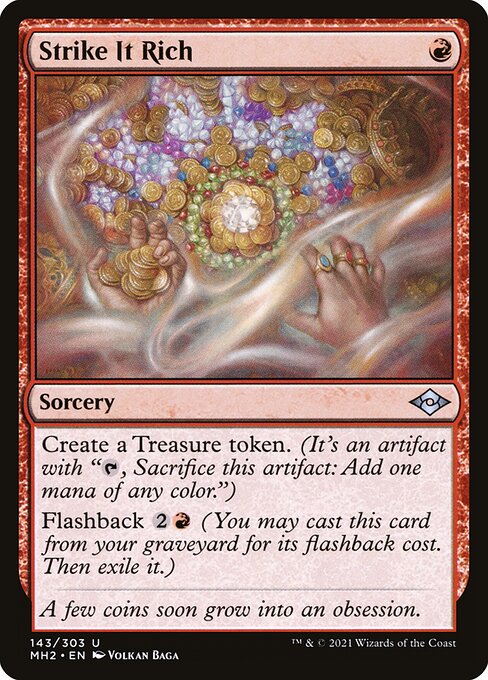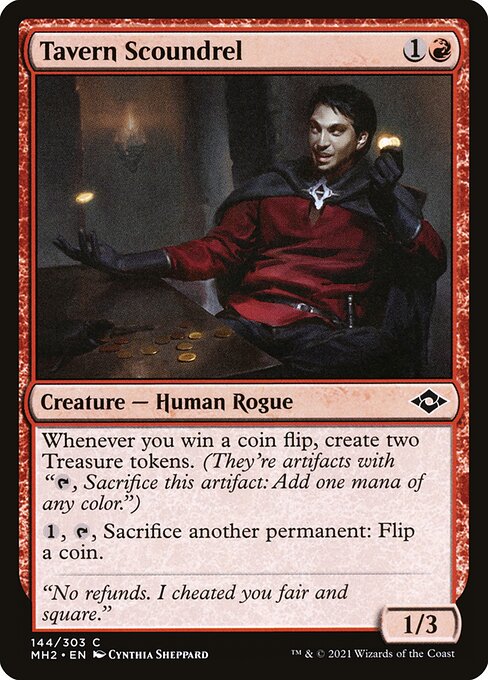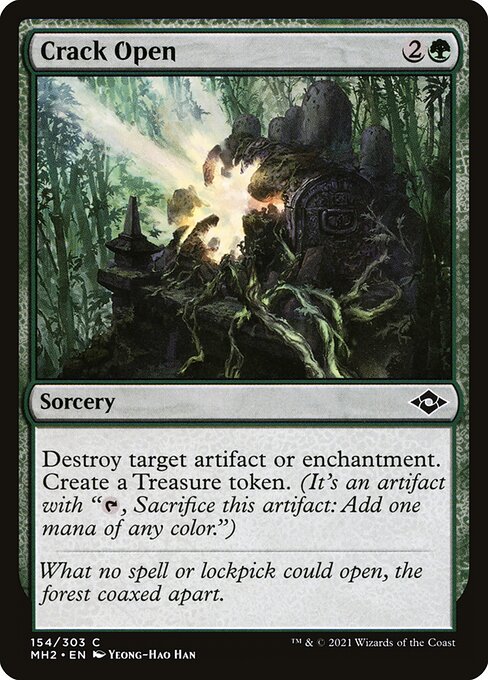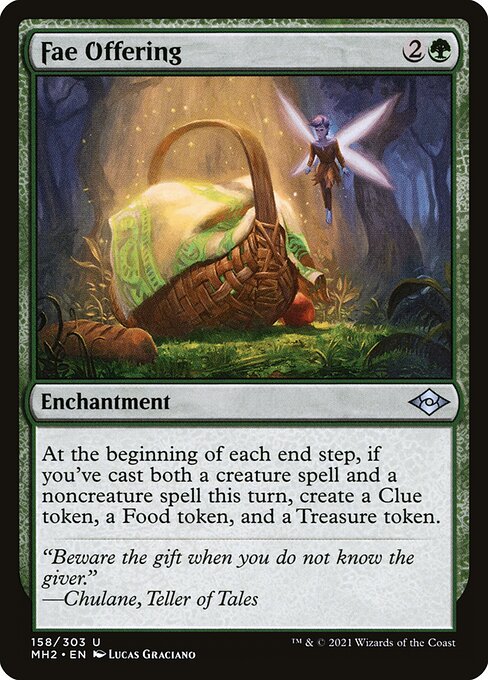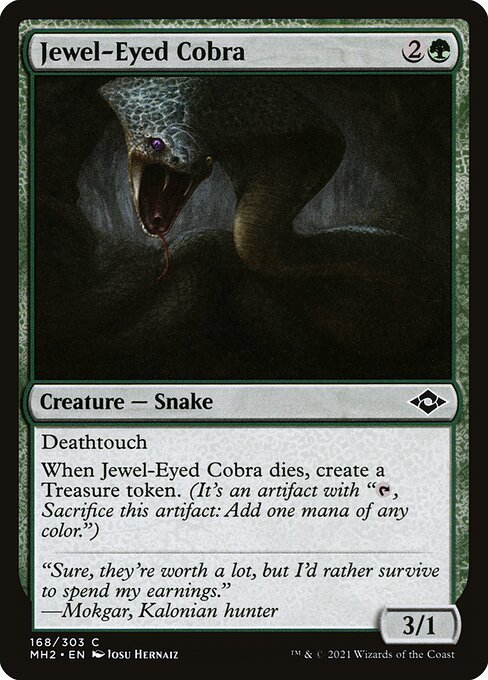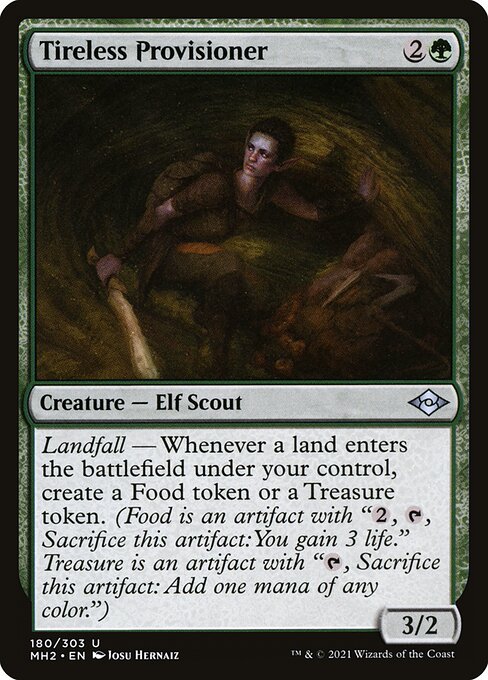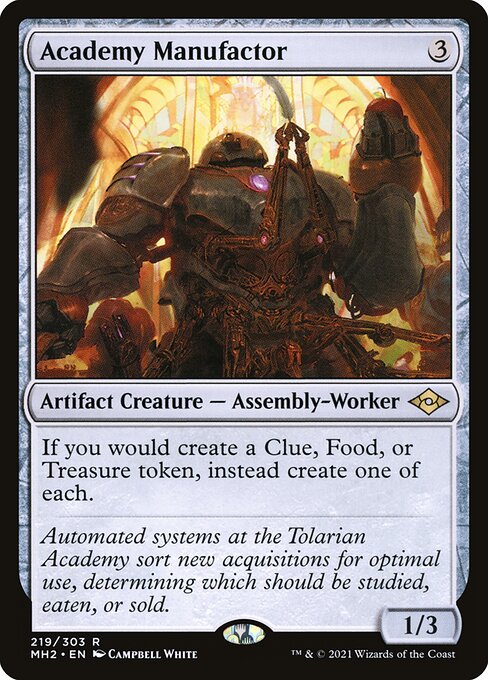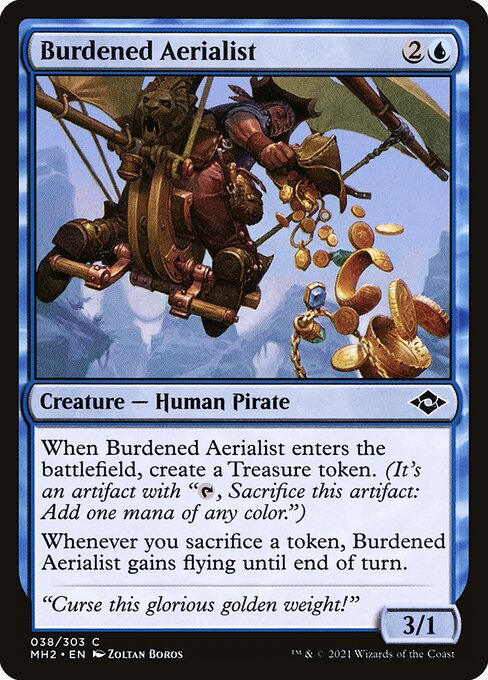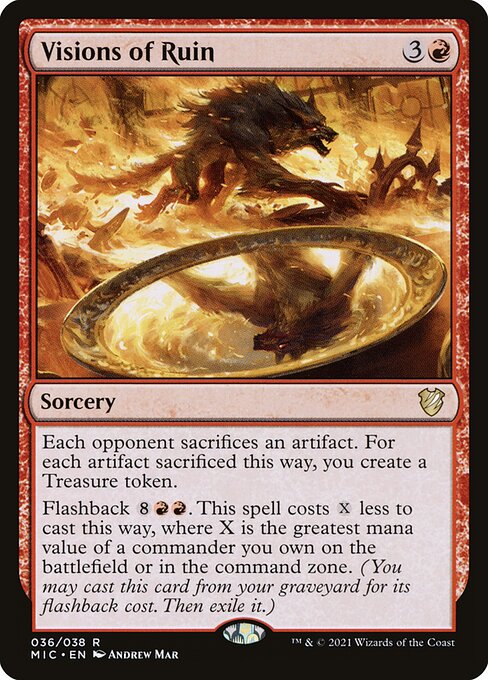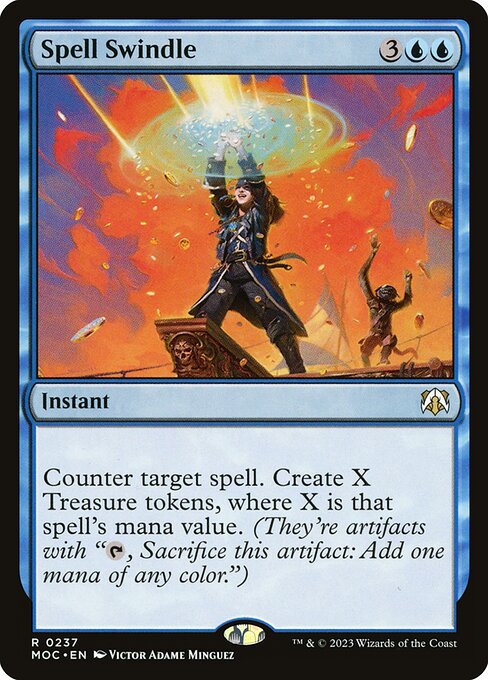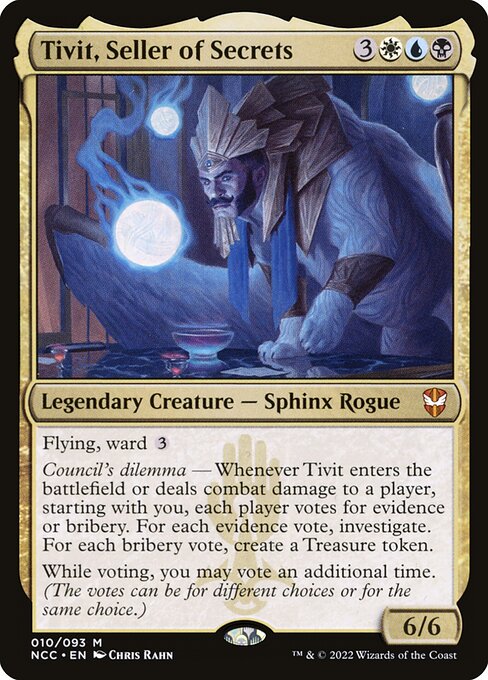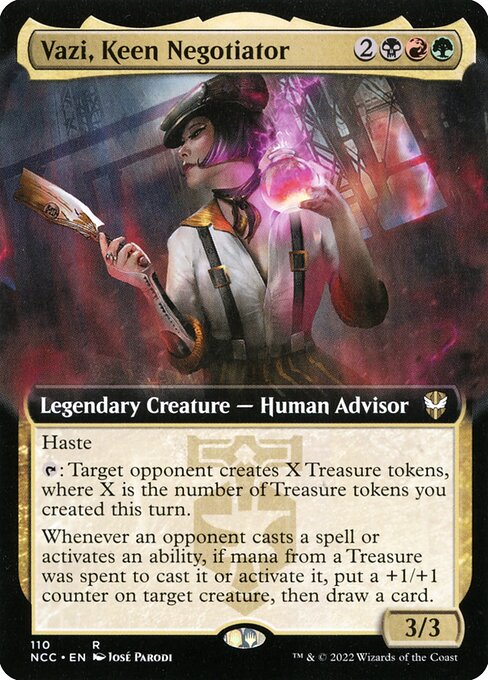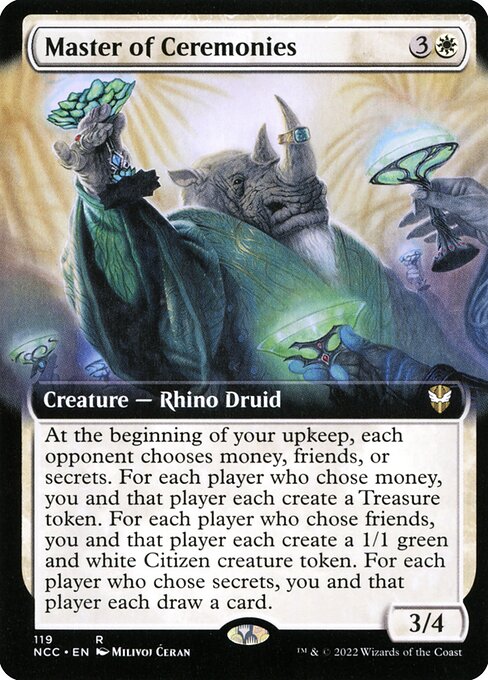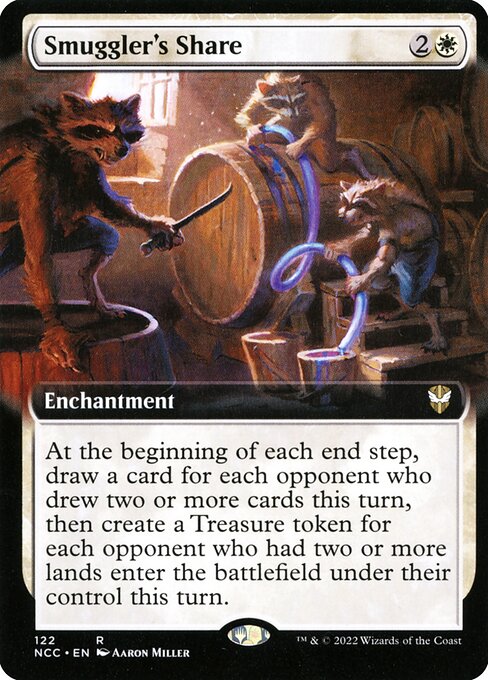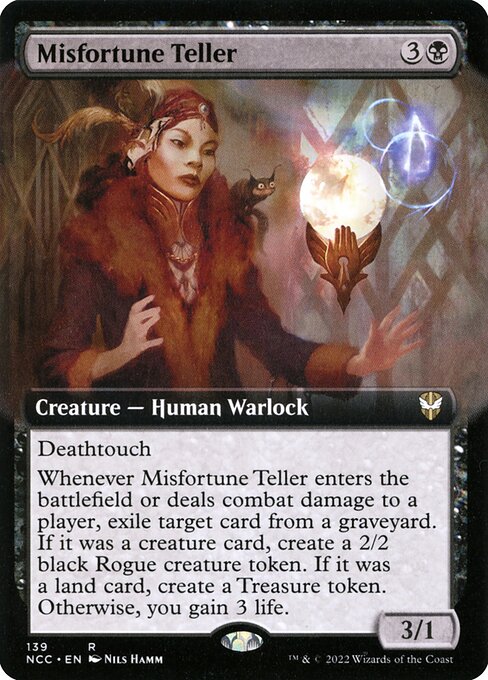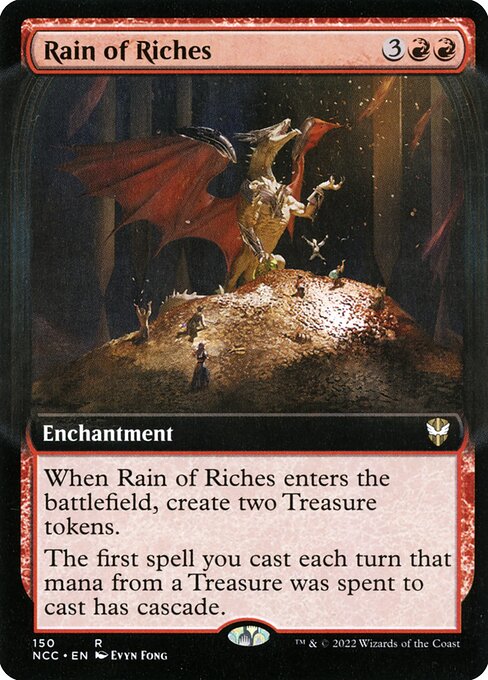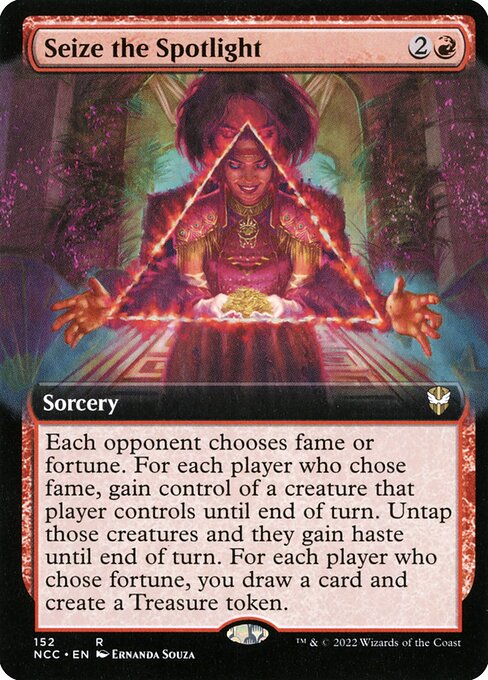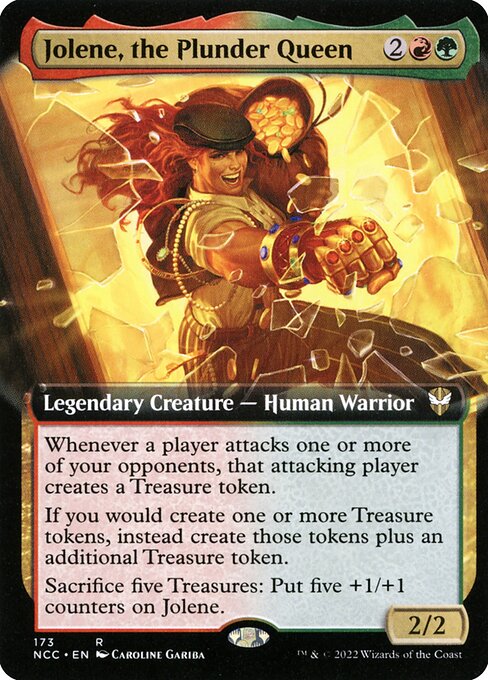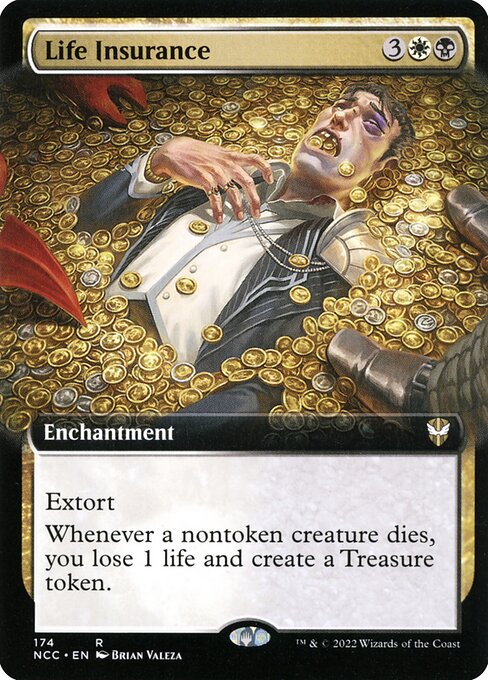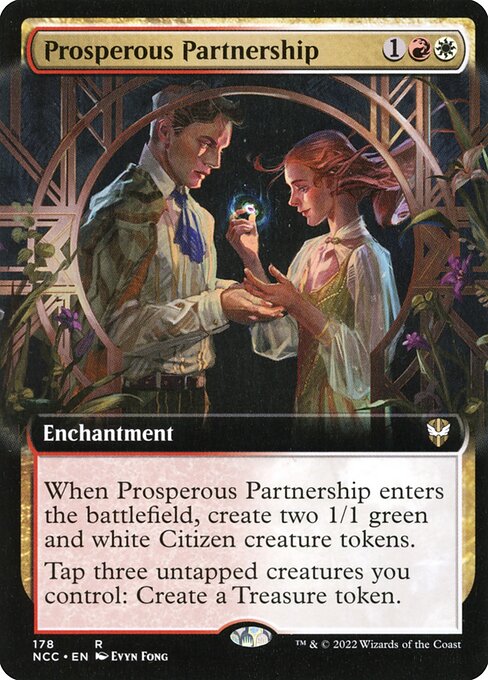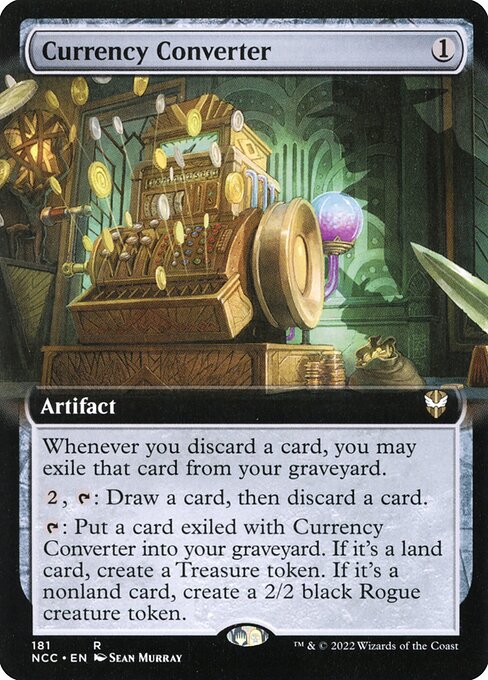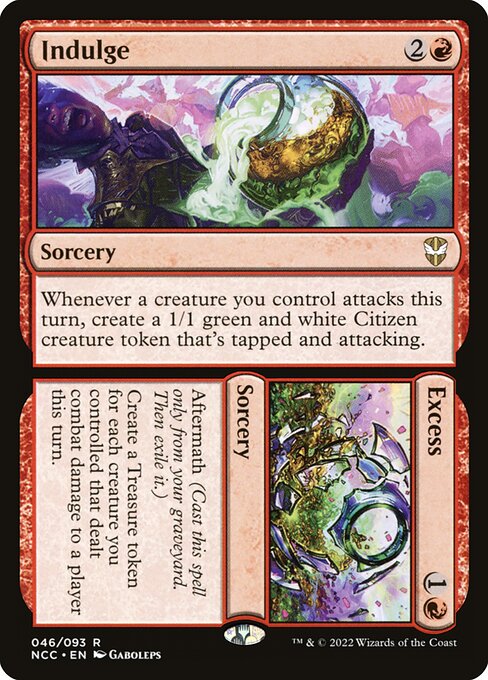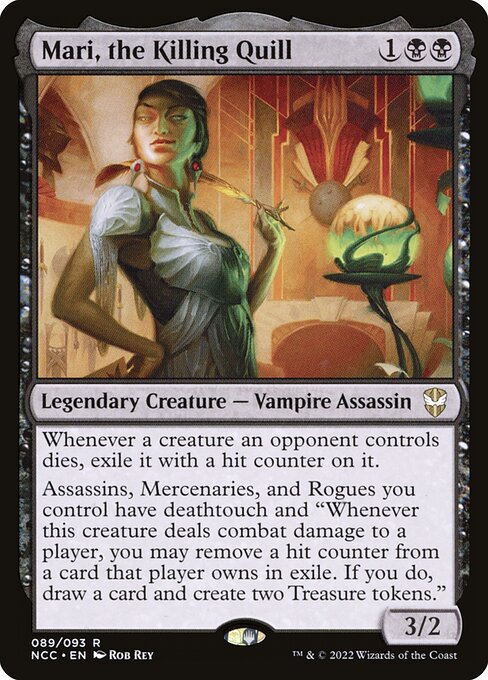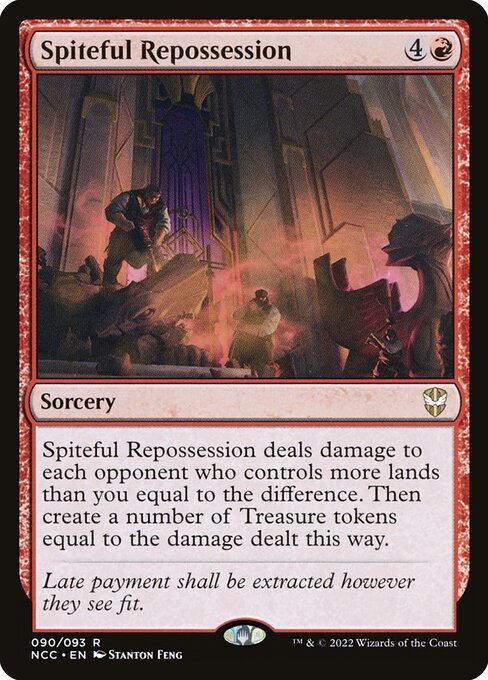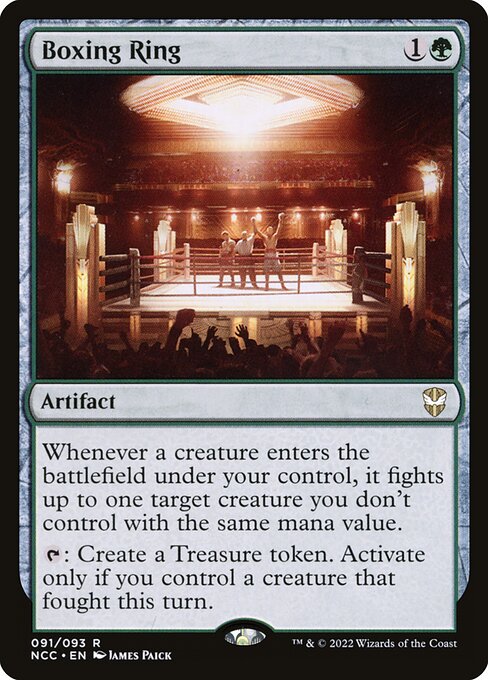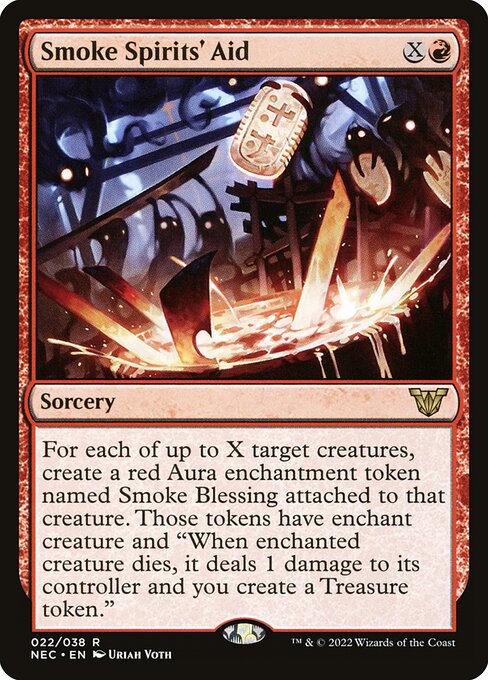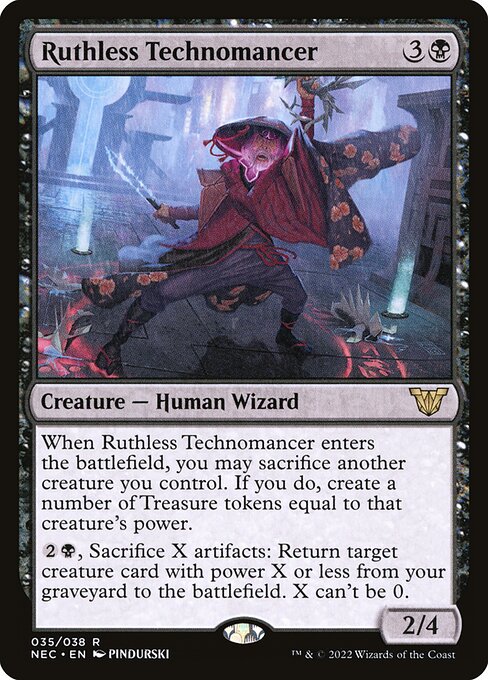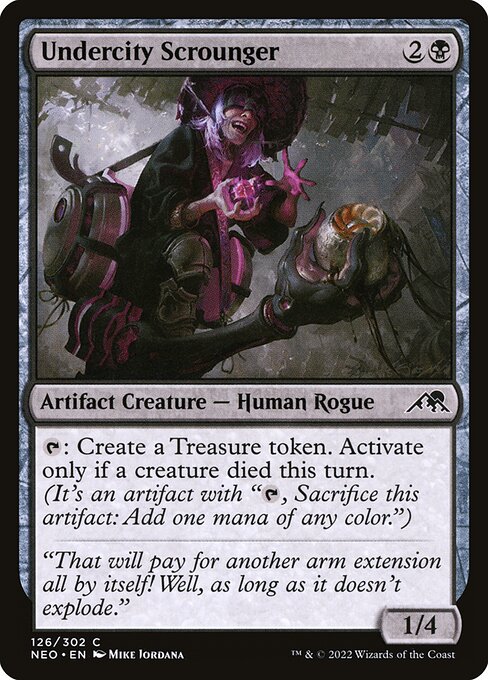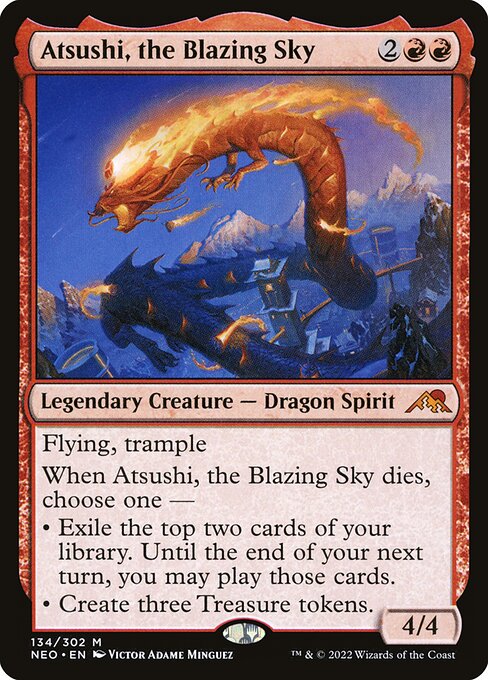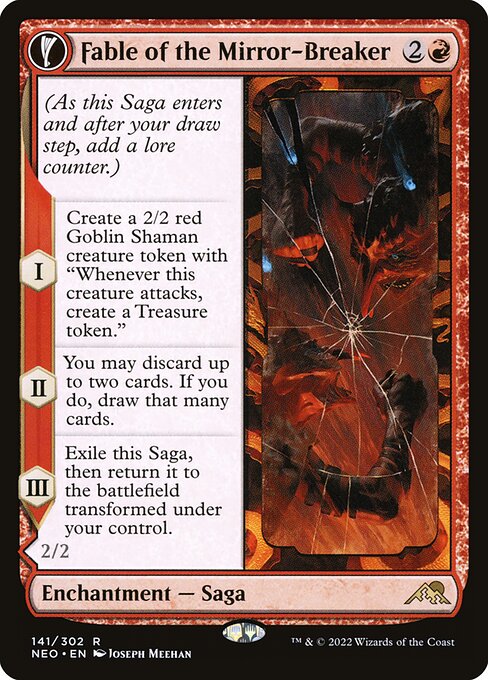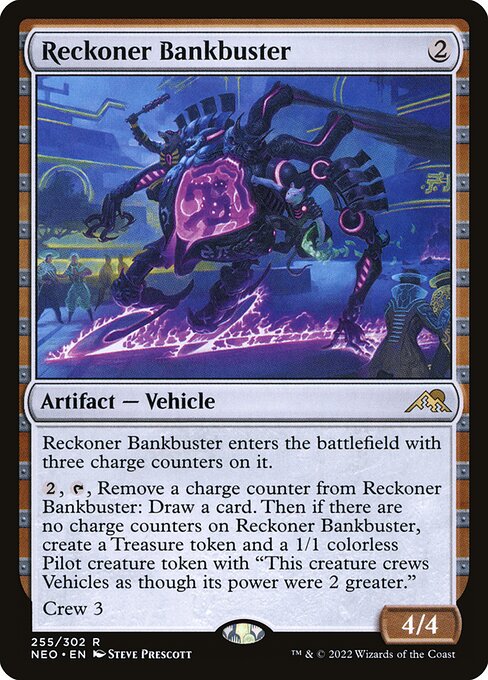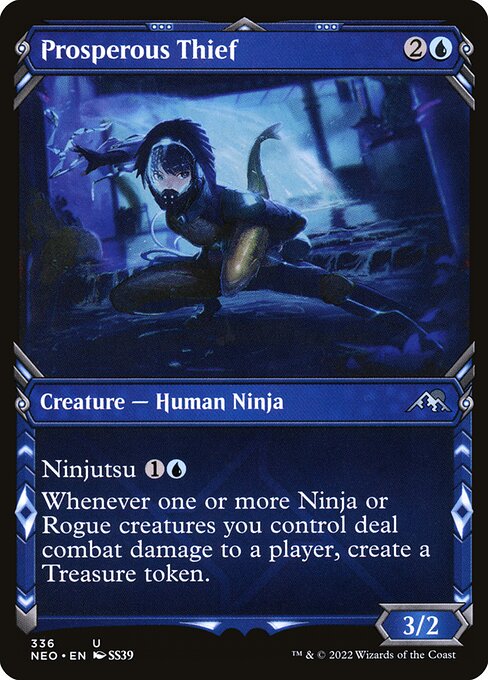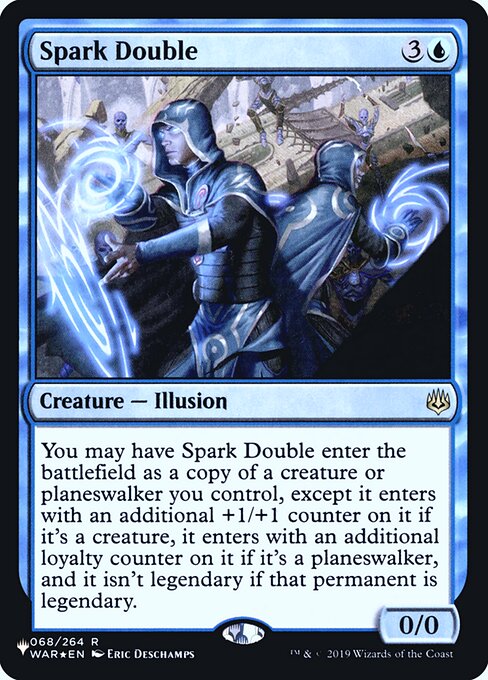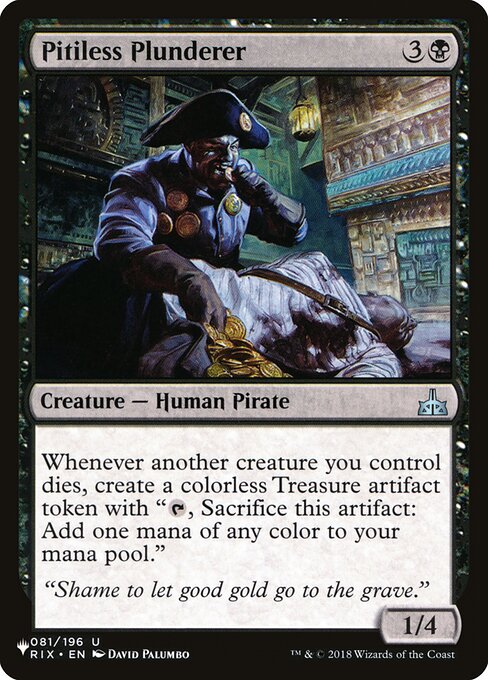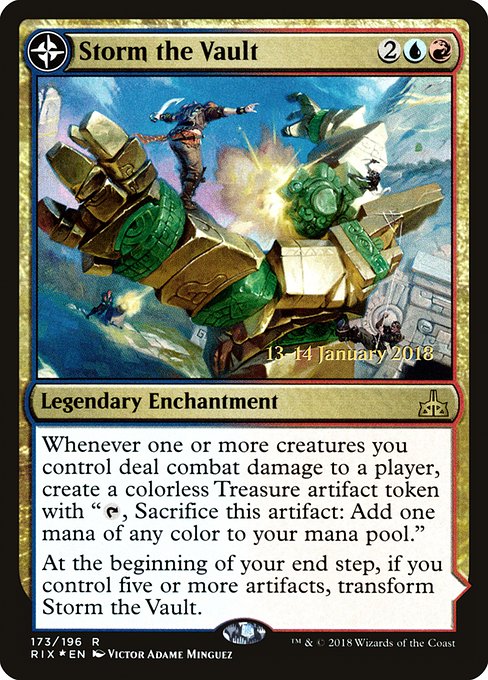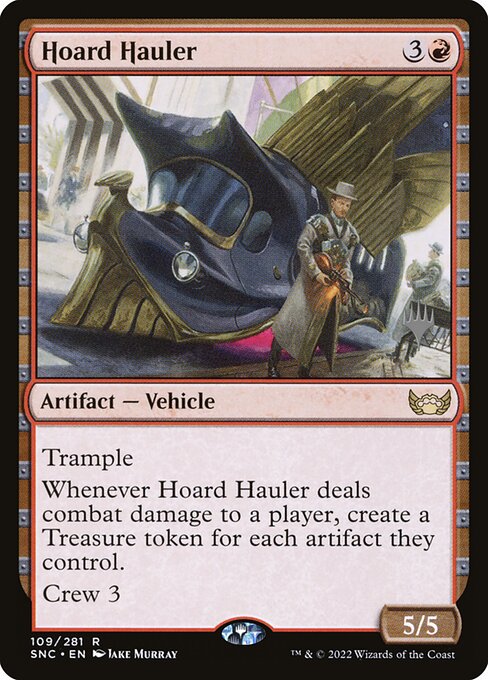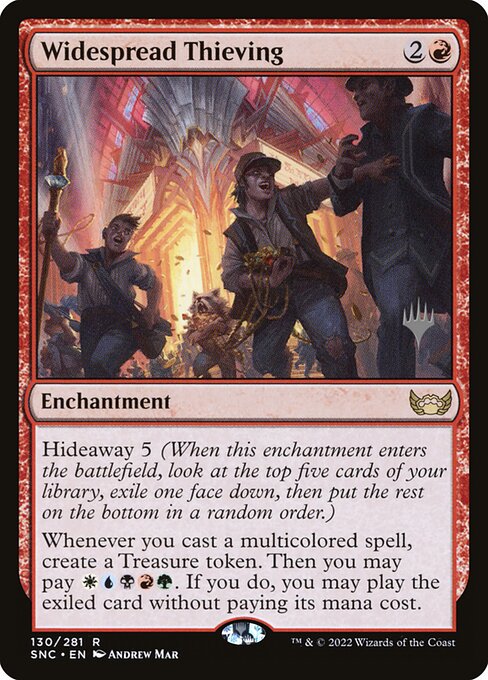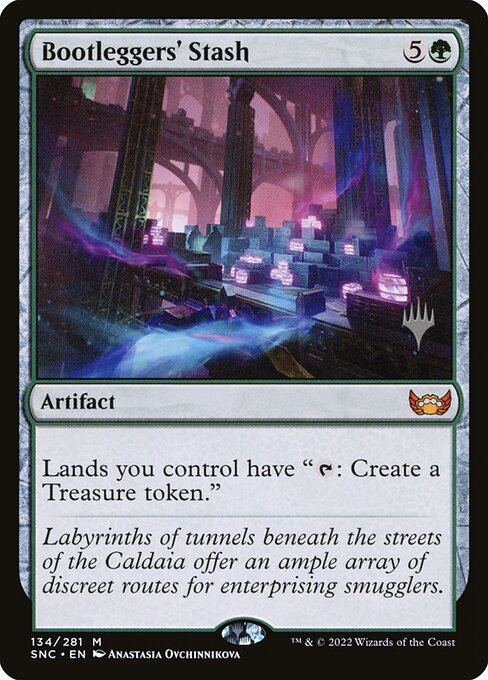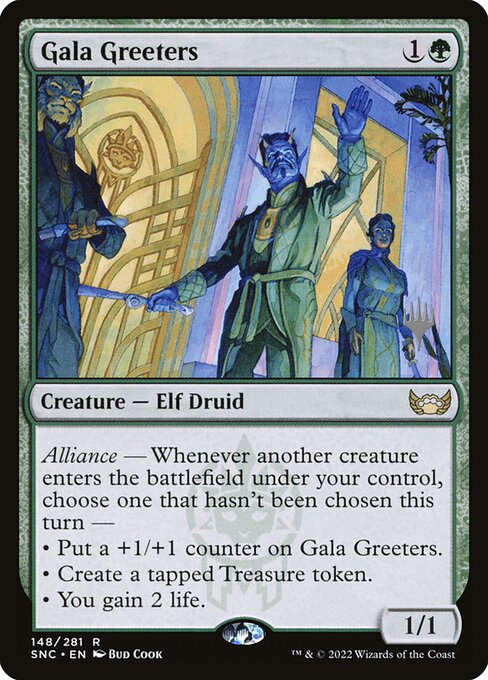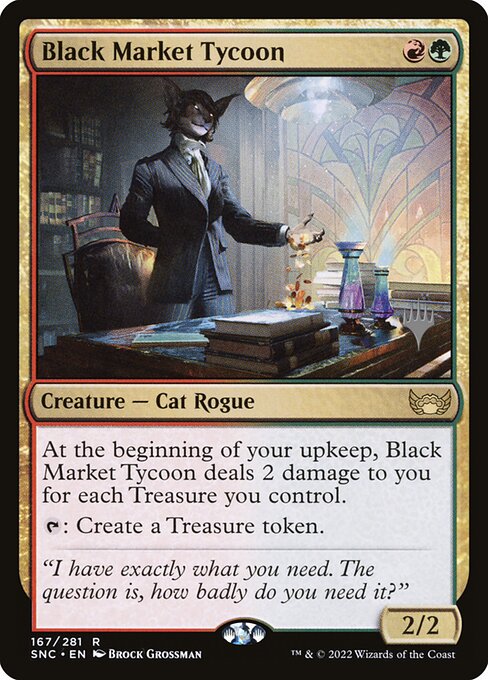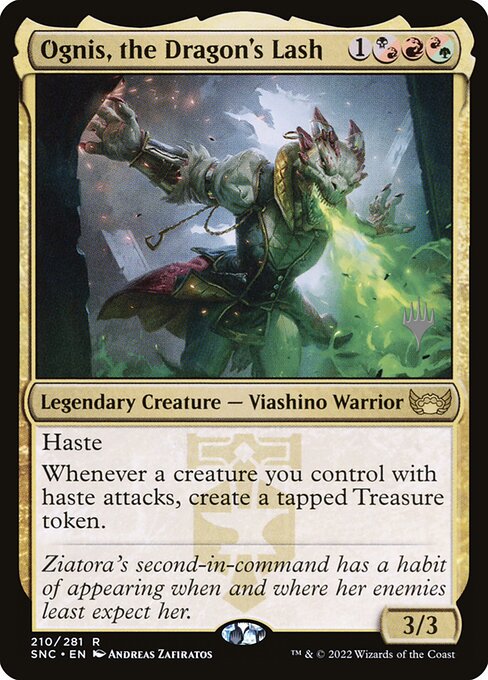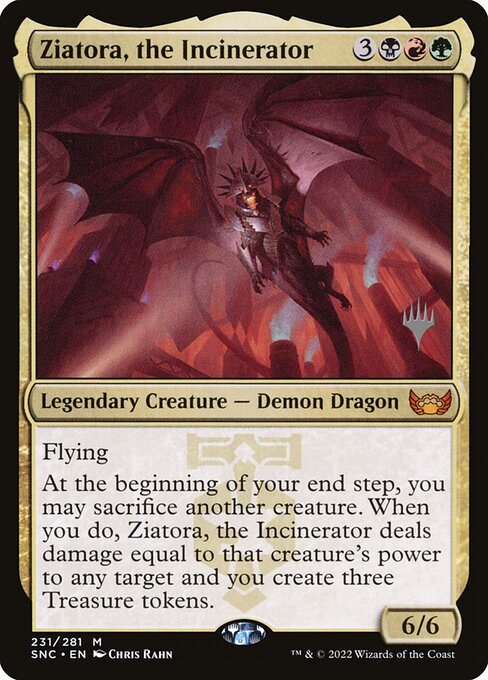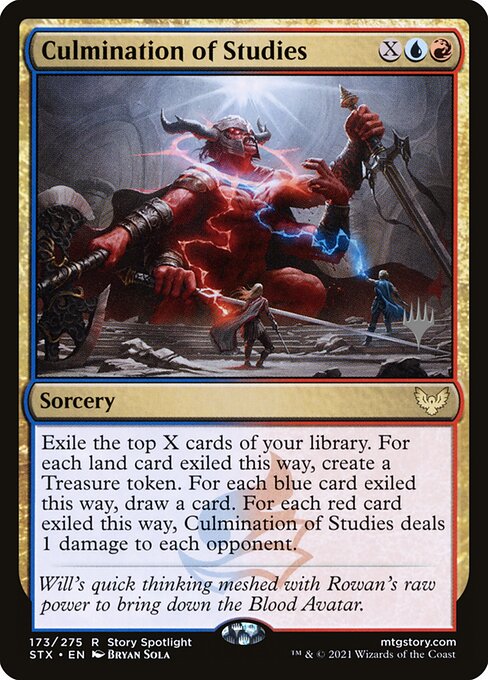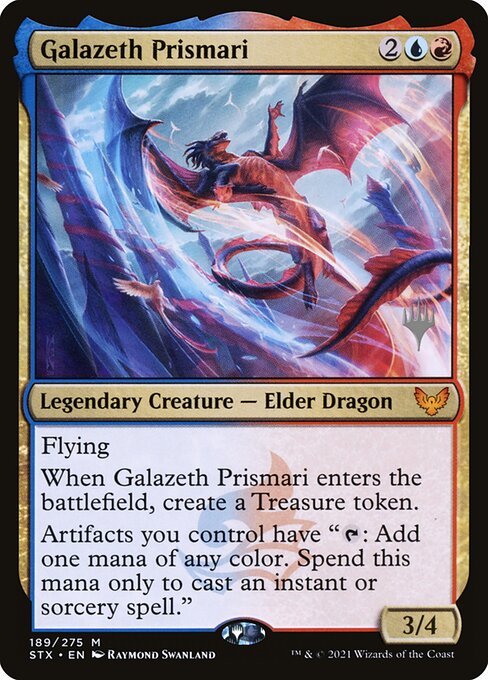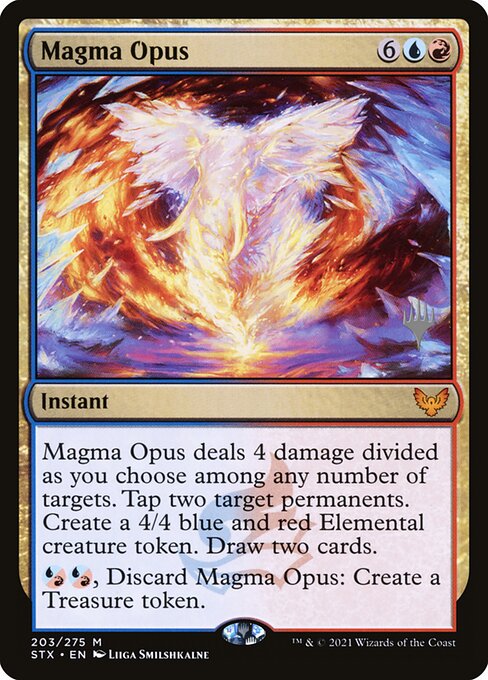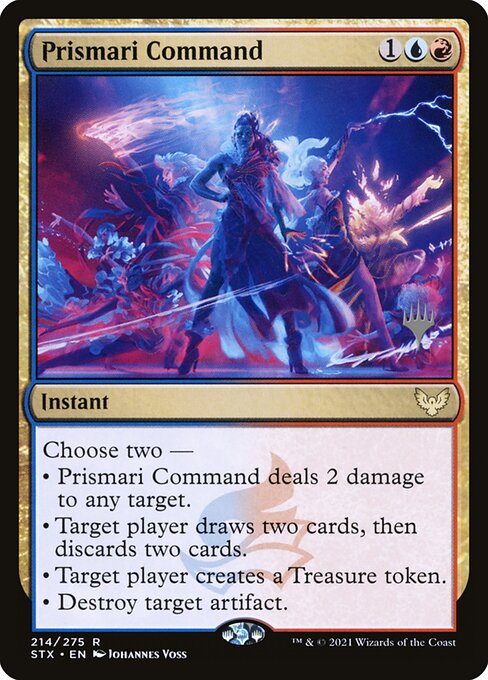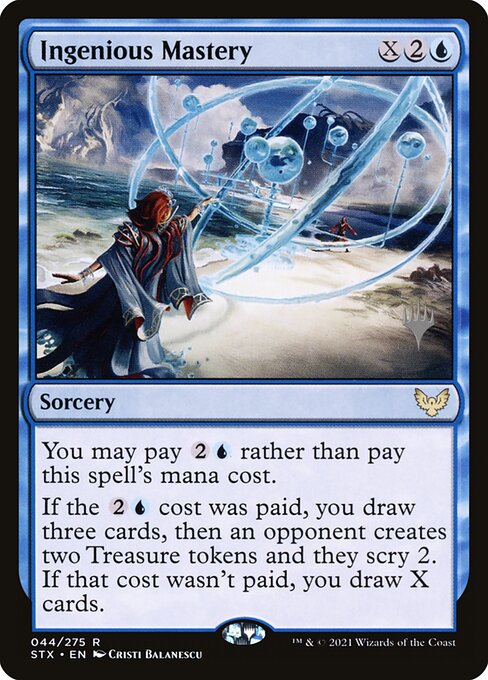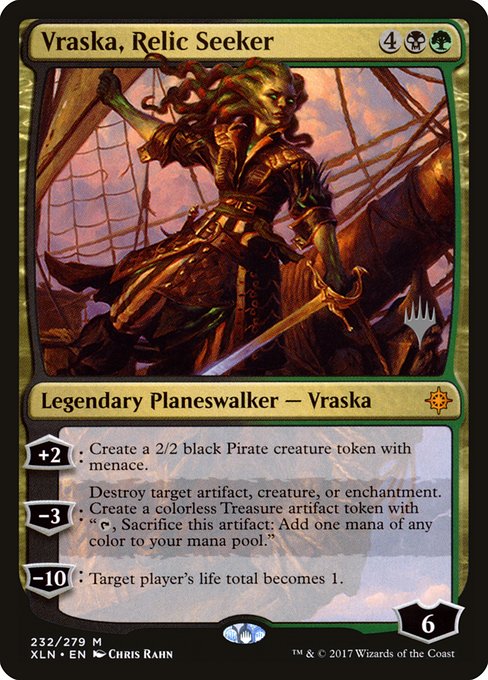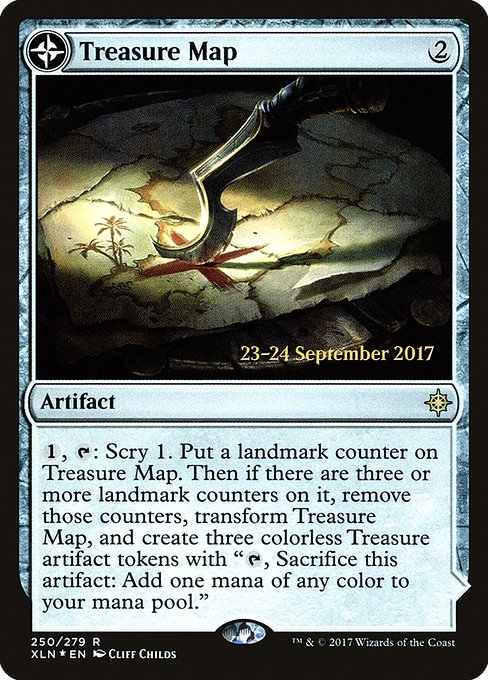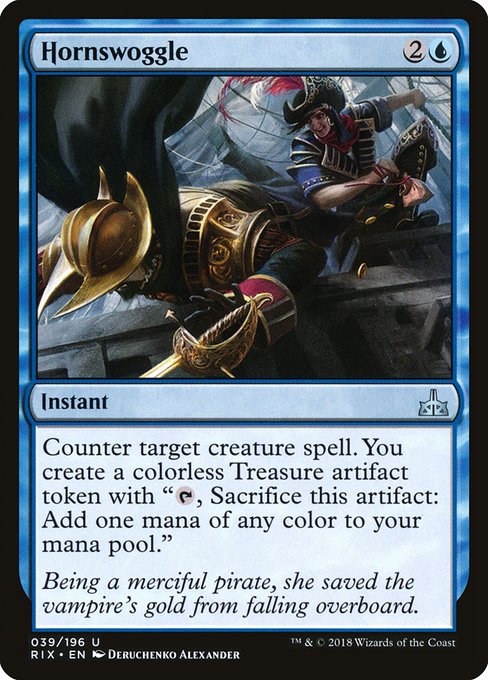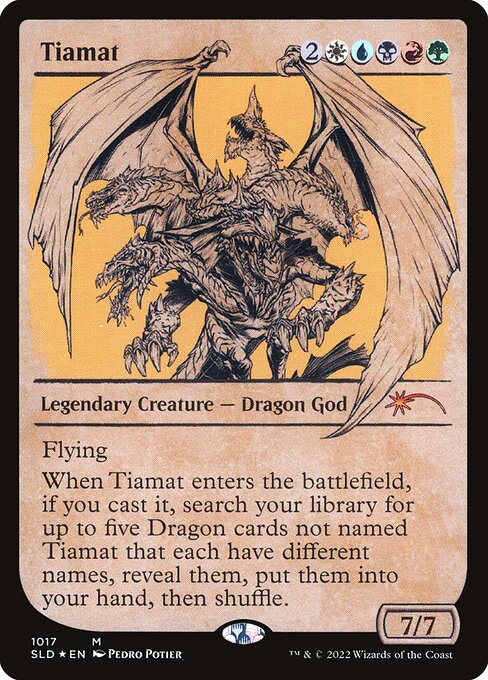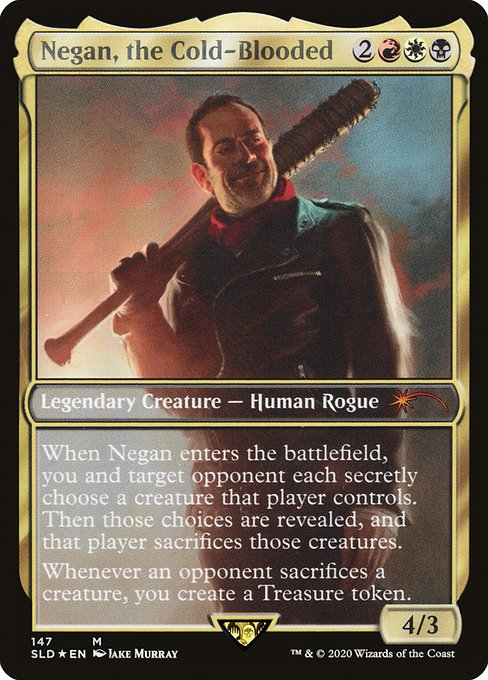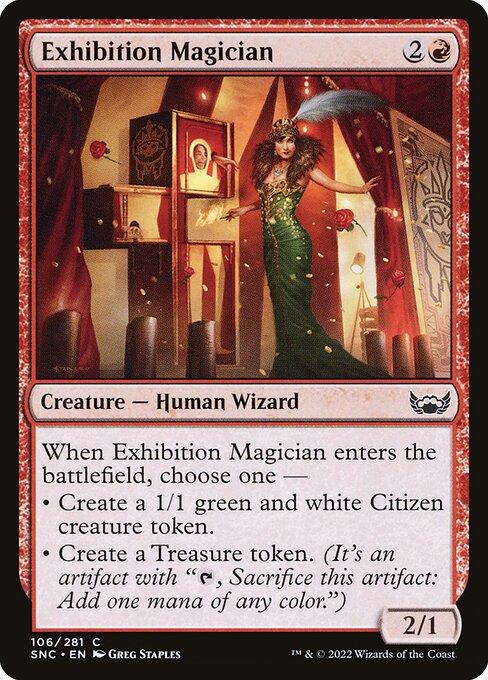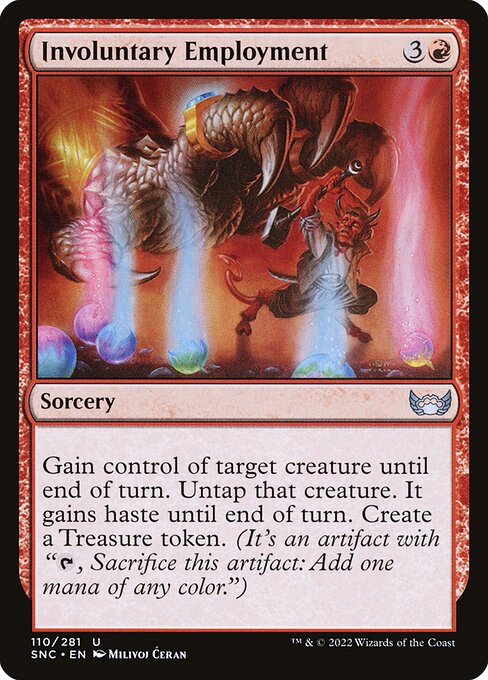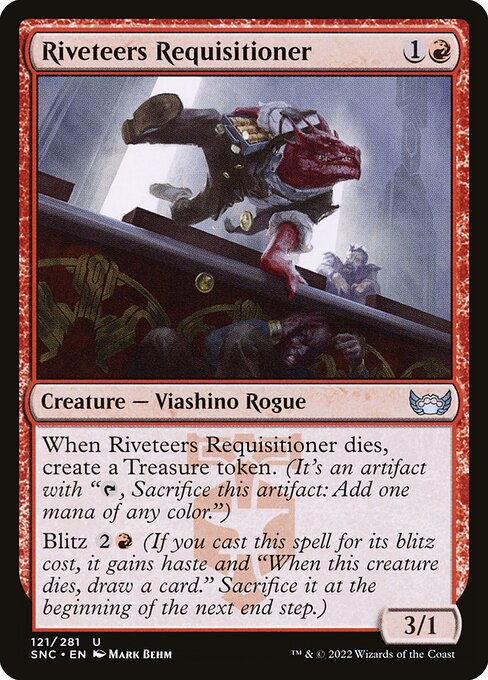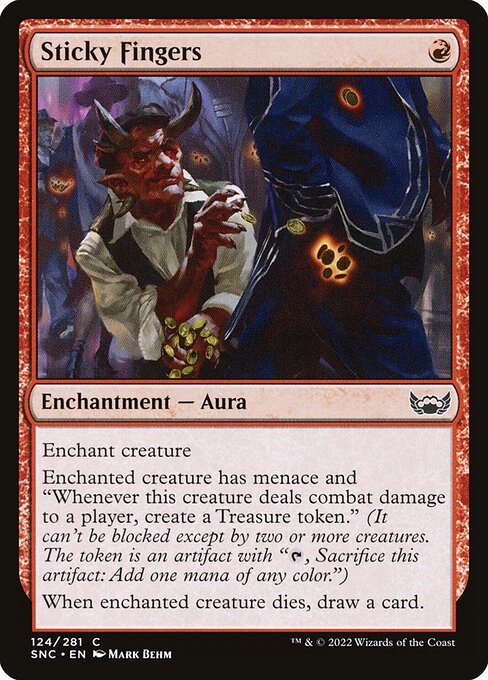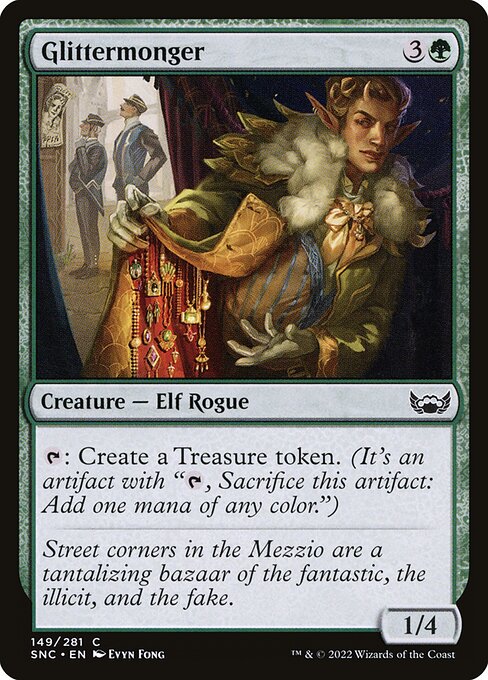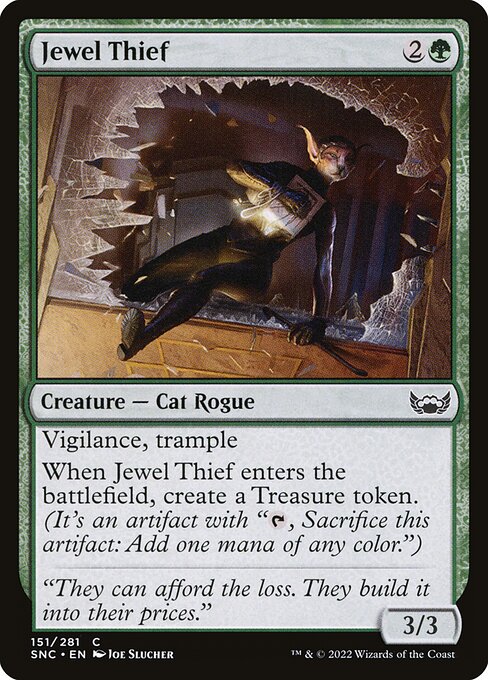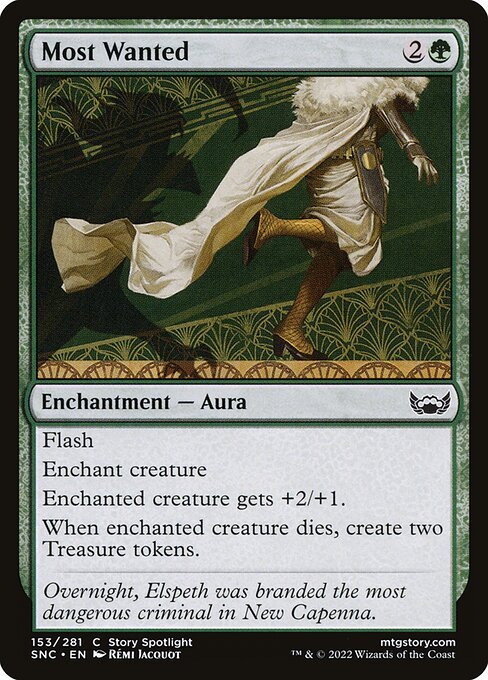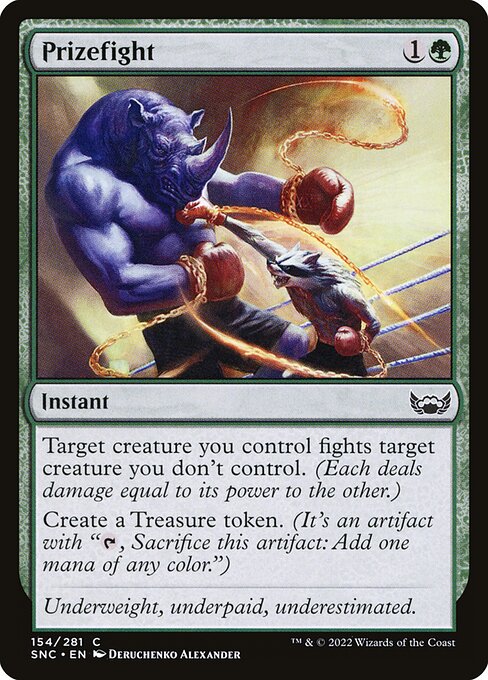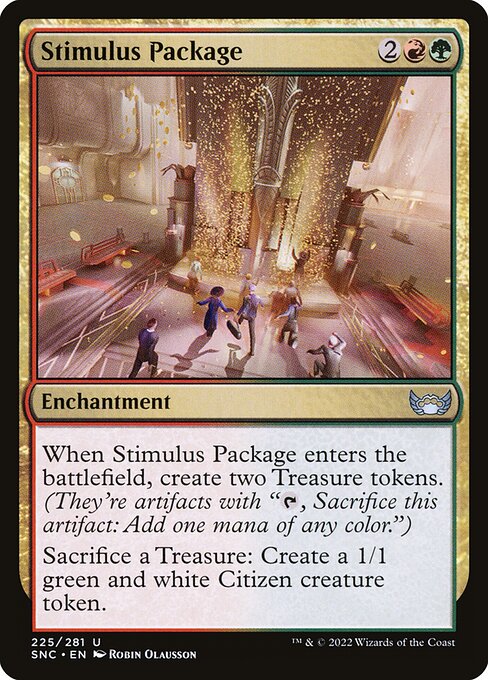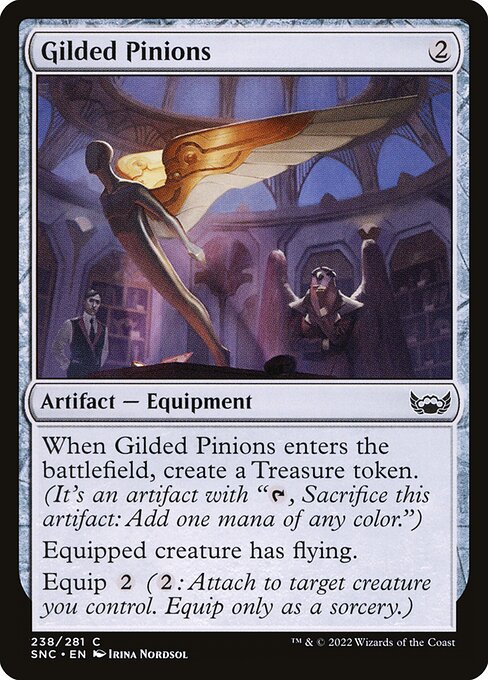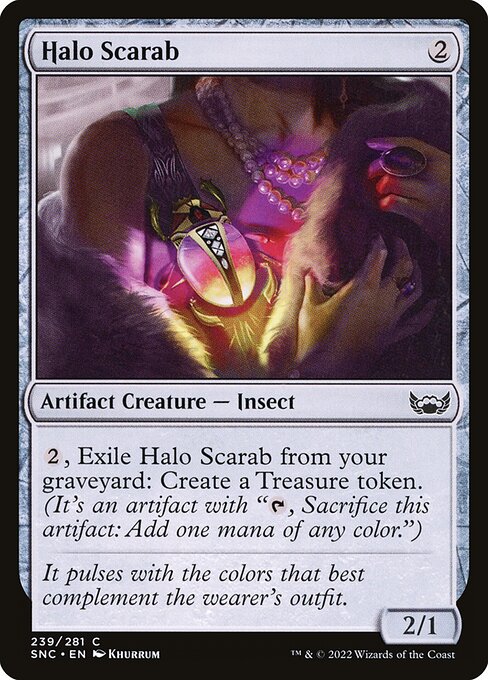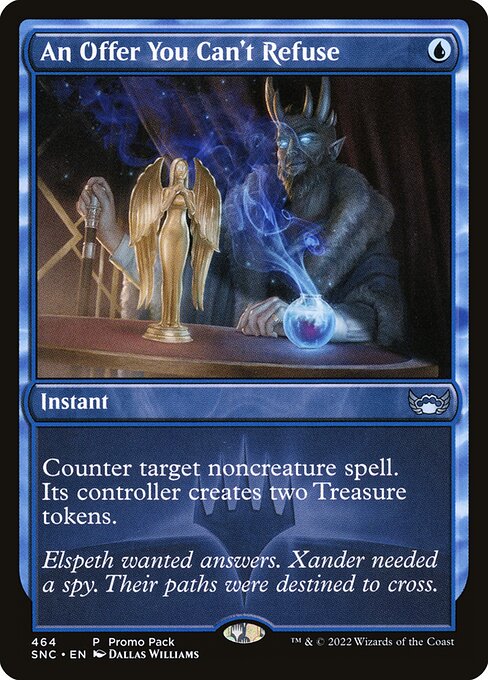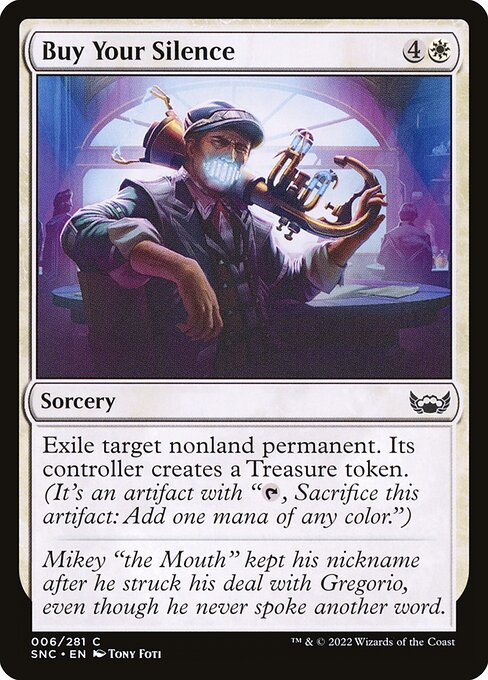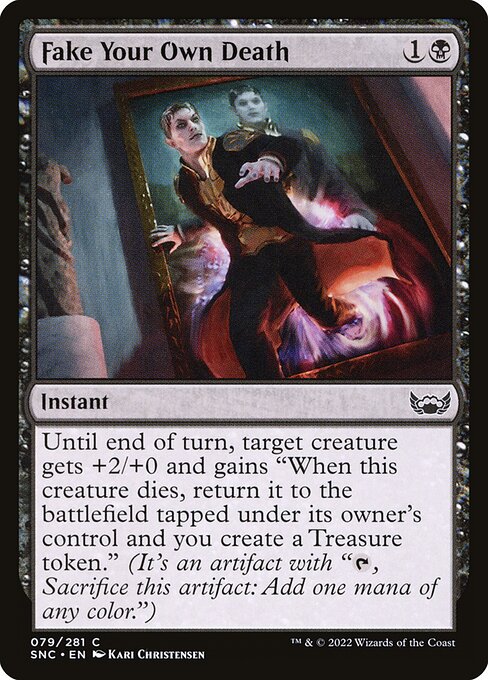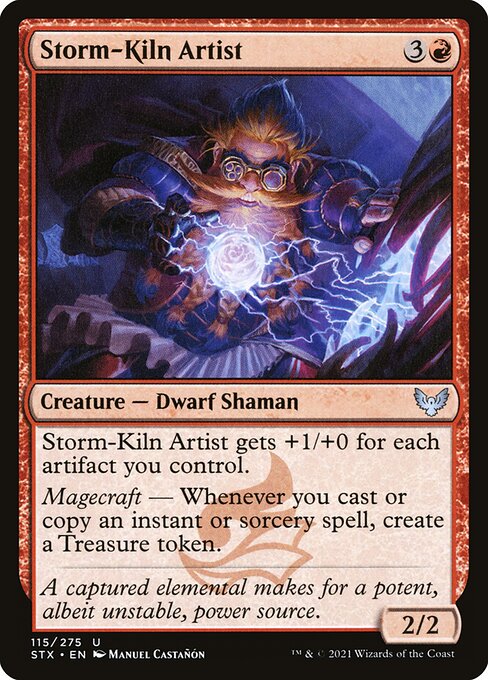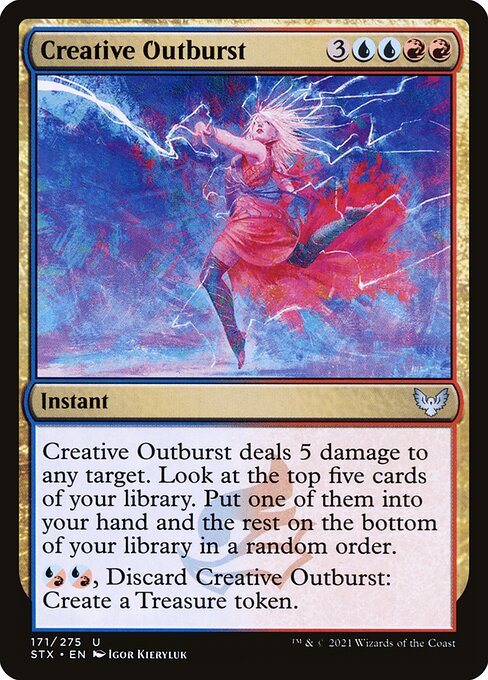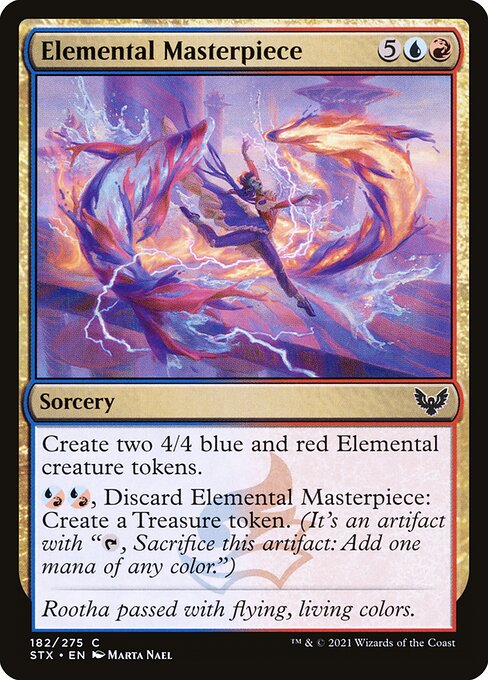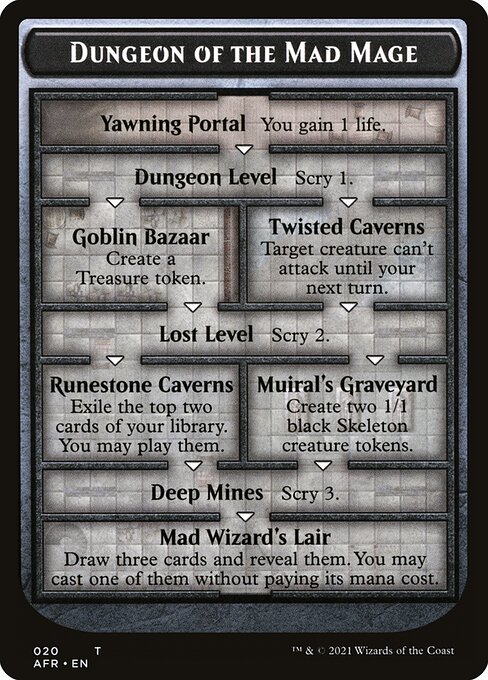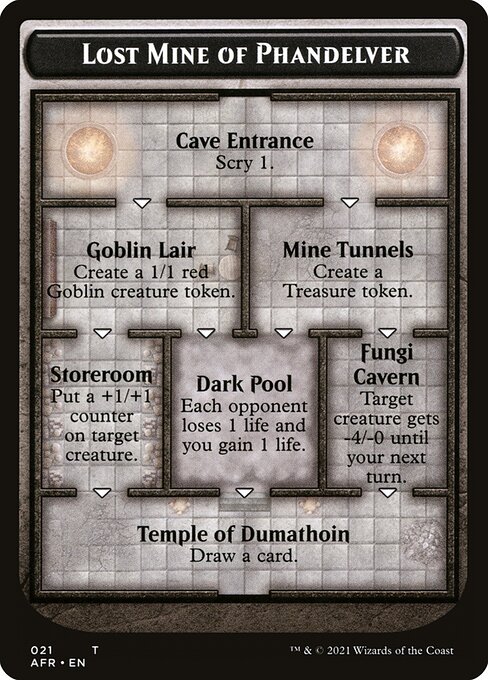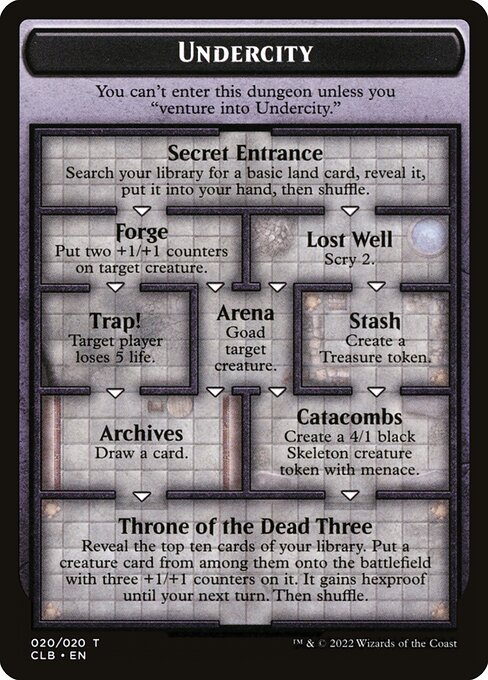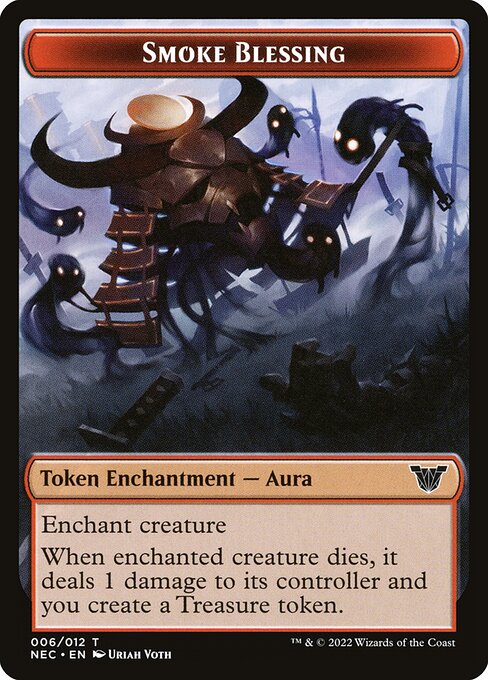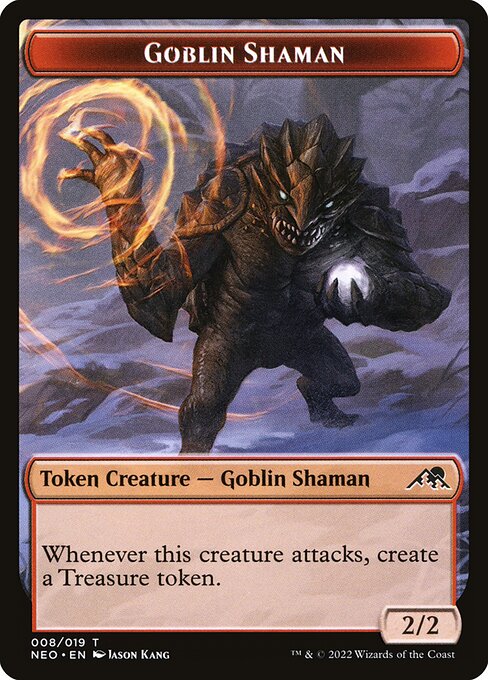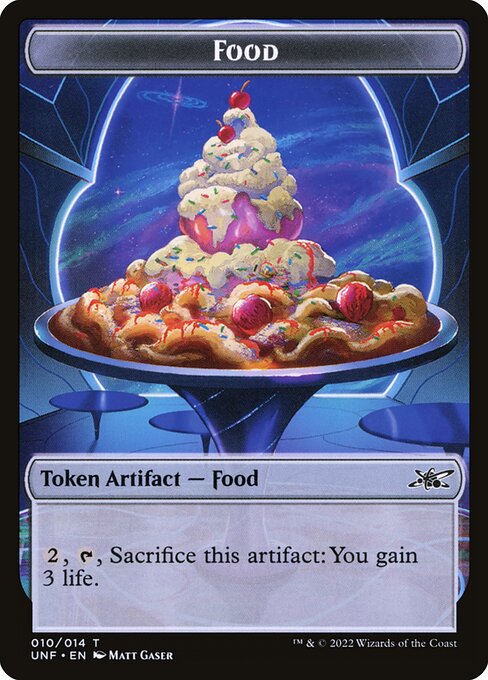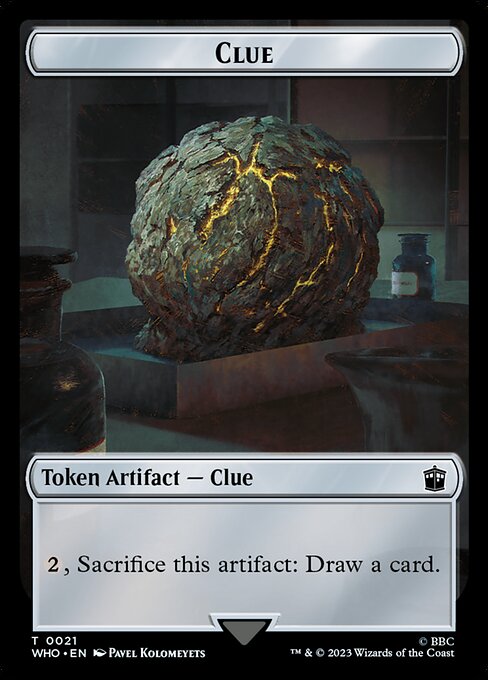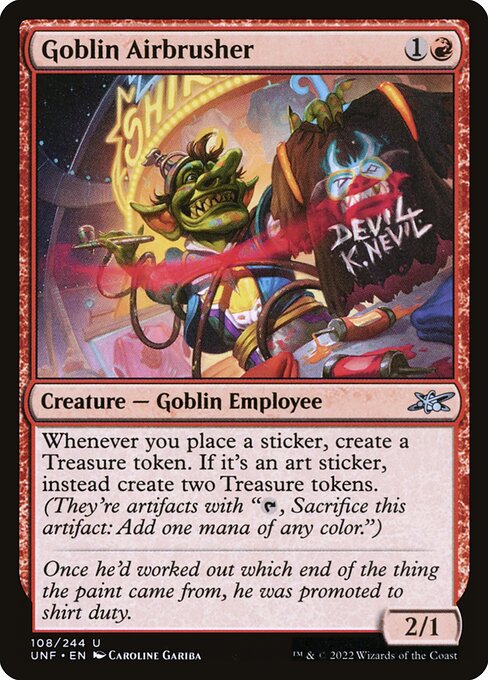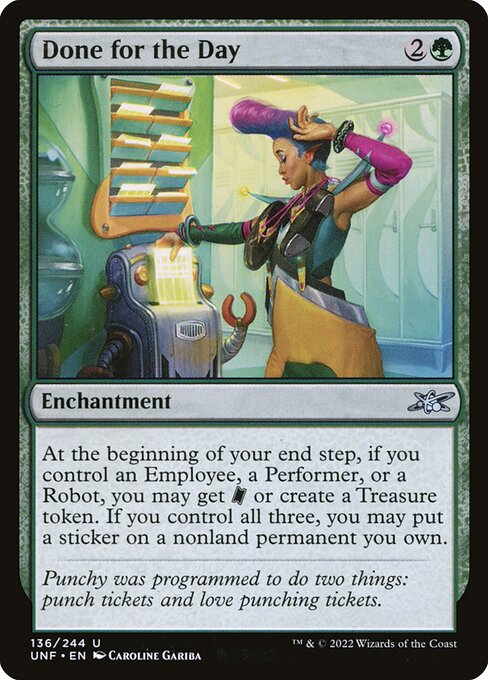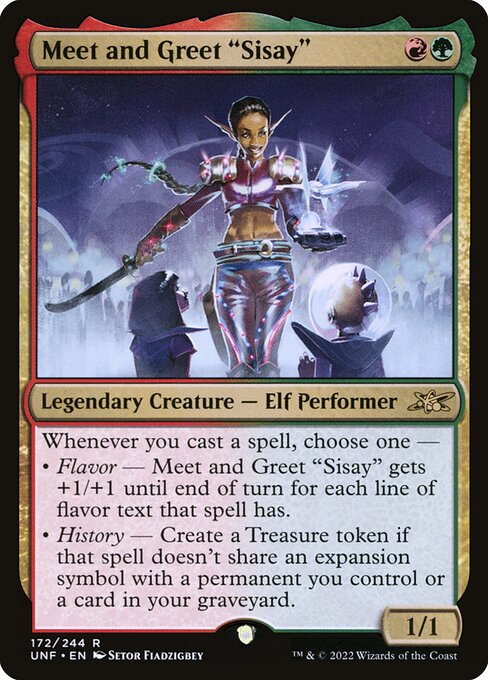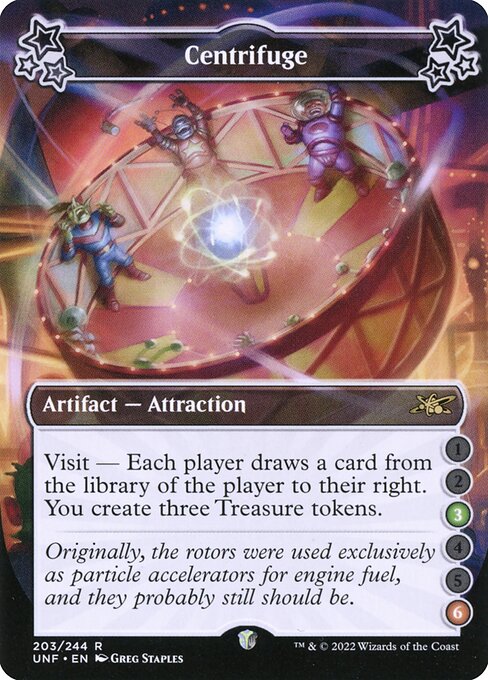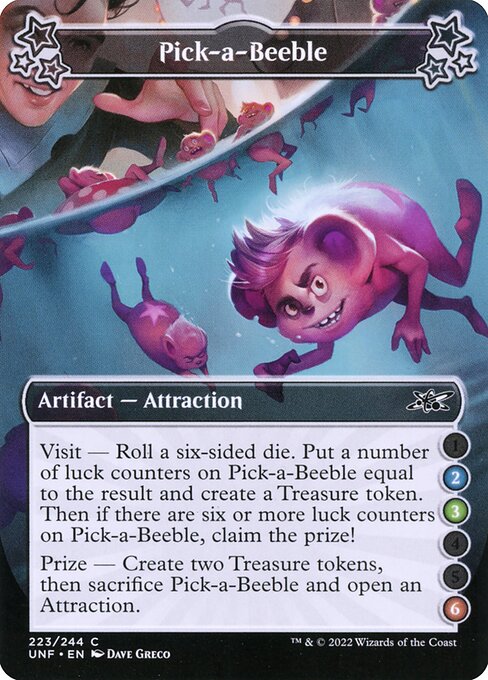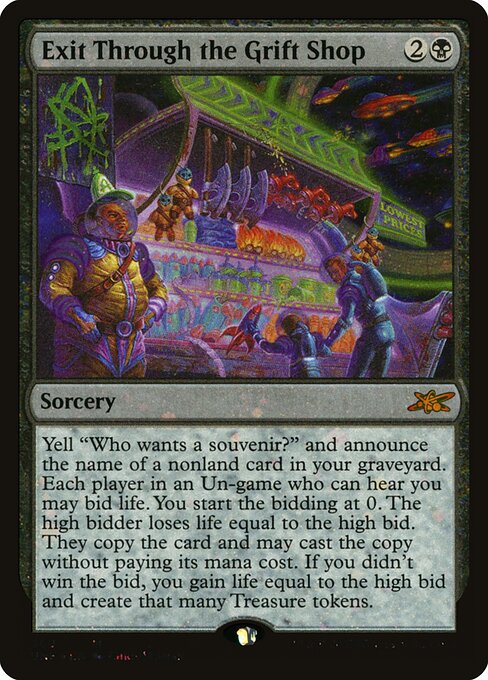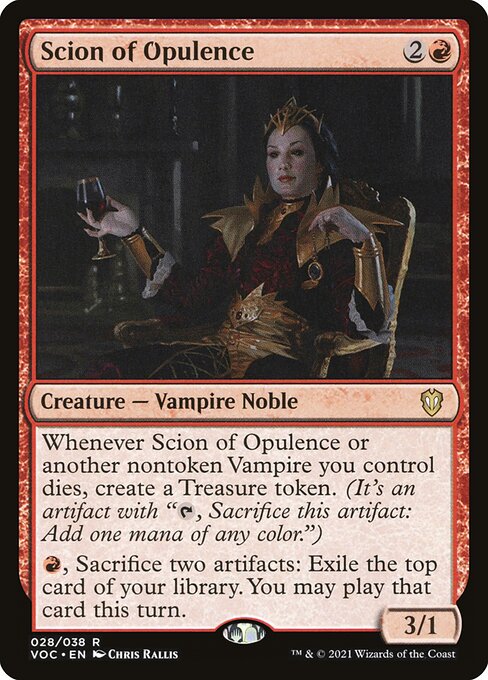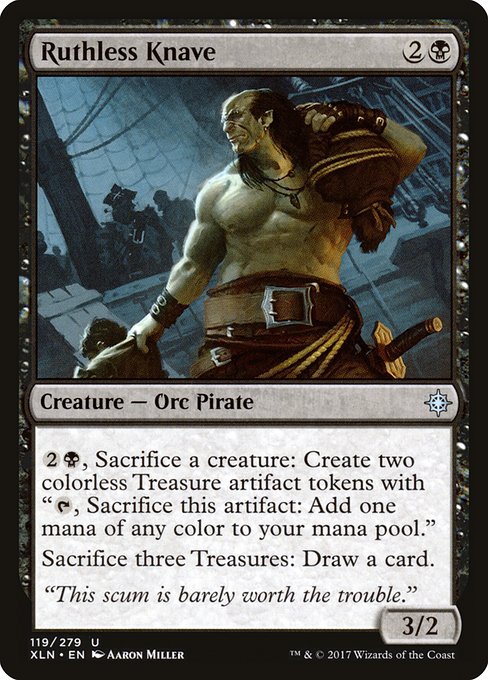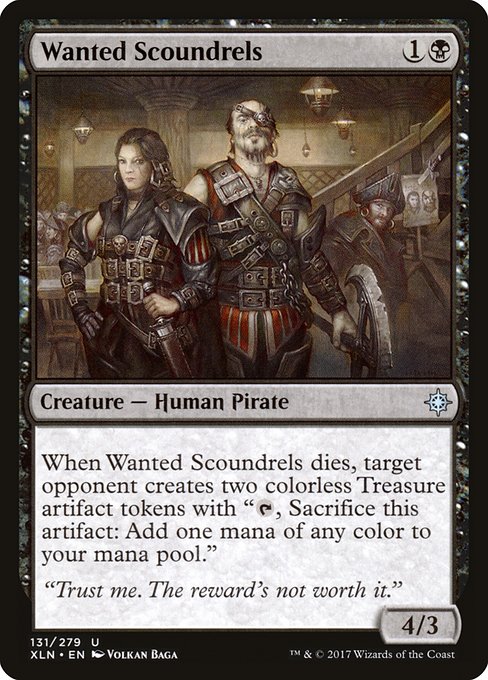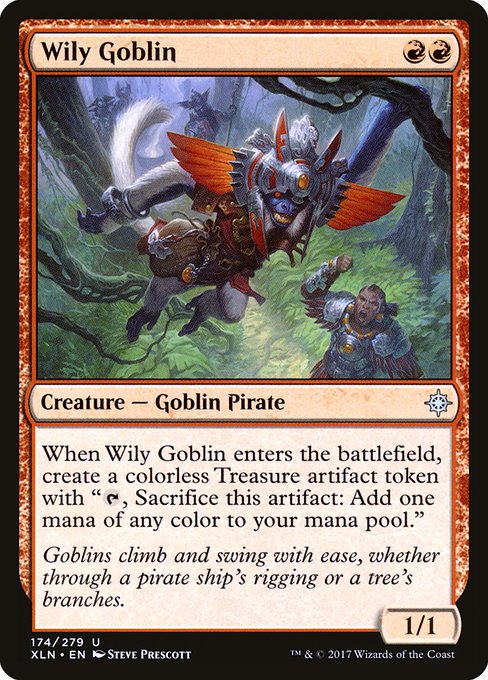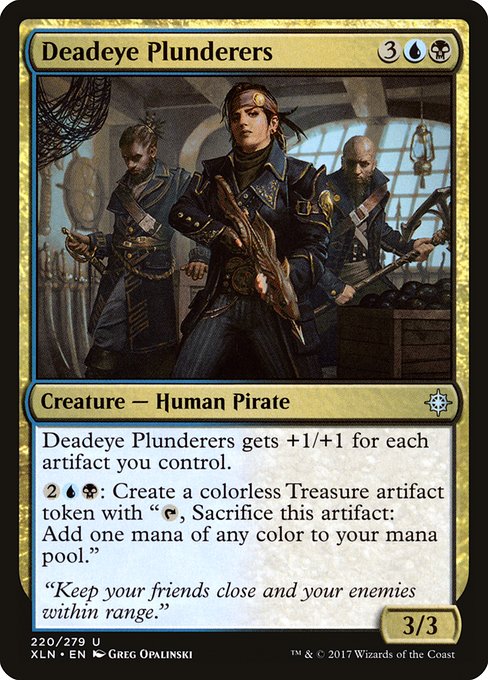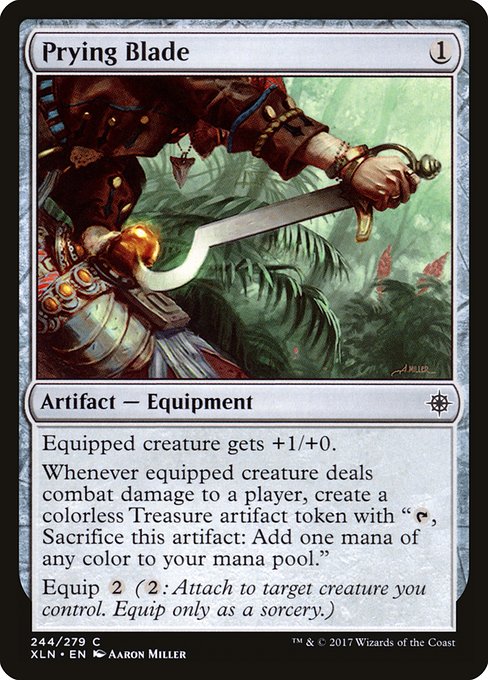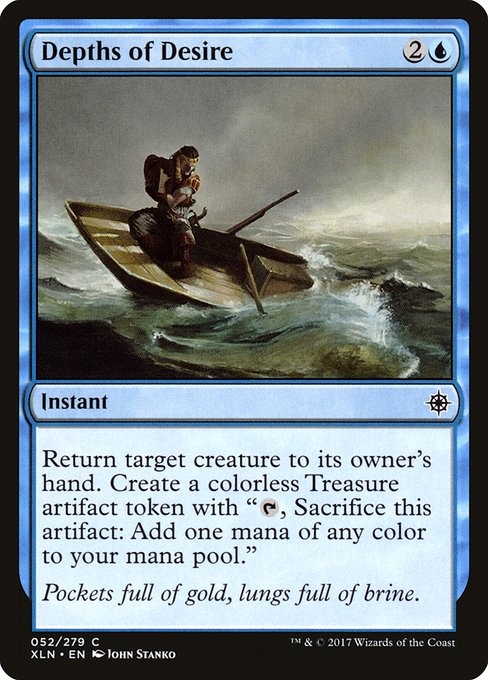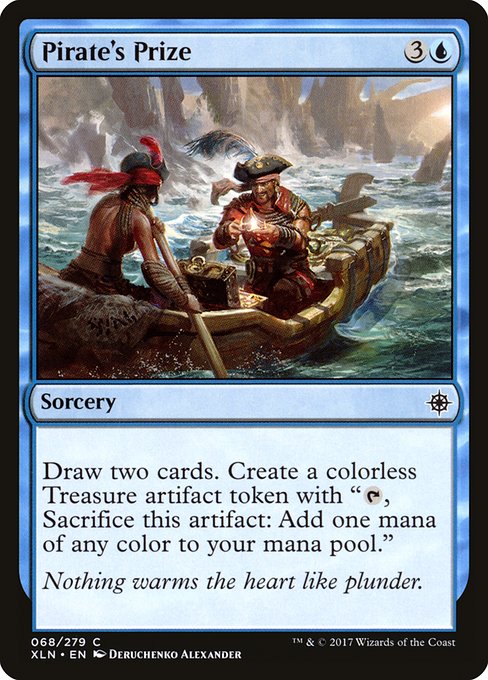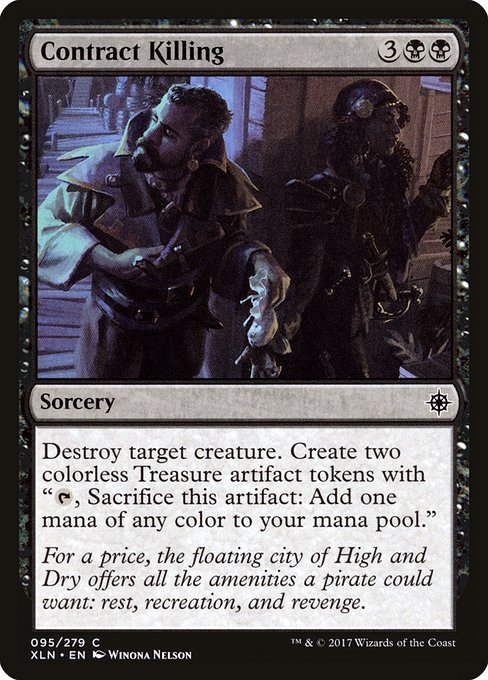Ignacio of Myra's Marvels
Legendary Creature — Lizard Performer
As Ignacio of Myra's Marvels enters the battlefield, choose armor, blood, book, bottle, fang, fire, scroll, spear, sword, or water.
Whenever you cast a spell with the chosen object in its art, create two Treasure tokens.
Partner (You can have two commanders if both have partner.)
Whenever you cast a spell with the chosen object in its art, create two Treasure tokens.
Partner (You can have two commanders if both have partner.)
4/3
standard
future
historic
gladiator
pioneer
explorer
modern
legacy
pauper
vintage
penny
commander
brawl
alchemy
paupercommander
duel
oldschool
premodern
Rulings
A scroll is one or more pages or parchments, usually designed to be rolled up. Scrolls can be open or closed. Books are not scrolls. They are books. See: Book.
A bottle is a device intended to hold liquid or small objects. It is usually made of glass. Bottles typically have necks and are designed to pour their contents. The bottle may be empty, but it should clearly be designed to hold something.
A book is any bound pages of writing, usually with a spine of some sort. Scrolls are not books. They are scrolls. See: Scroll.
Blood is a liquid, usually red, that comes from within a creature’s circulatory system. If the blood isn’t with its previous owner—say it’s in a pool on the floor—the previous owner doesn’t need to be in the art. The blood does need to contextually be blood. Red liquid in a goblet might not be blood. Red liquid in a goblet held by a vampire? Blood. Red anything at a wedding for a pair of ancient vampires? Take a wild guess.
Water is a liquid found in lakes, oceans, pools, wells, rivers, and glasses both half-empty and half-full. The liquid must contextually be water. Rain counts. Note that you must see the water. A well wouldn’t count if you couldn’t see the water inside, for example, even if the water is implied.
Fire is combustion or burning, whereby substances combine chemically with oxygen from the air and typically give out bright light, heat, and smoke. Fire is usually red, orange, or yellow, but it can be other colors. Note that being a hot thing doesn’t necessarily make something fire. Magma and lava, for example, are not inherently fire, although they may cause fire.
A fang is a tooth, typically longer than a creature’s other teeth, and typically used to puncture enemies, often to drink their blood. The presence of non-fang teeth is important to establish that what you see are fangs and the creature just doesn’t have very long teeth.
If all players can’t agree on what’s in the art, you may consult an outside person for a final determination.
A spear is the recommended serving size of pickle. It is also a pole with a pointed blade on one end. It is traditionally a weapon. For our purposes, the spear can be thrown (javelins are okay), as long the weapon’s general shape clearly implies spear. It can be sticking out of a body.
A sword is a bladed weapon with a handle. If a creature is wearing a scabbard with a sword in it, and all you can see is the handle, that counts.
Armor is a covering worn on the body to protect against damage. It is typically metal or leather, although it can be made from anything. It can’t be a natural part of the creature.
A bottle is a device intended to hold liquid or small objects. It is usually made of glass. Bottles typically have necks and are designed to pour their contents. The bottle may be empty, but it should clearly be designed to hold something.
A book is any bound pages of writing, usually with a spine of some sort. Scrolls are not books. They are scrolls. See: Scroll.
Blood is a liquid, usually red, that comes from within a creature’s circulatory system. If the blood isn’t with its previous owner—say it’s in a pool on the floor—the previous owner doesn’t need to be in the art. The blood does need to contextually be blood. Red liquid in a goblet might not be blood. Red liquid in a goblet held by a vampire? Blood. Red anything at a wedding for a pair of ancient vampires? Take a wild guess.
Water is a liquid found in lakes, oceans, pools, wells, rivers, and glasses both half-empty and half-full. The liquid must contextually be water. Rain counts. Note that you must see the water. A well wouldn’t count if you couldn’t see the water inside, for example, even if the water is implied.
Fire is combustion or burning, whereby substances combine chemically with oxygen from the air and typically give out bright light, heat, and smoke. Fire is usually red, orange, or yellow, but it can be other colors. Note that being a hot thing doesn’t necessarily make something fire. Magma and lava, for example, are not inherently fire, although they may cause fire.
A fang is a tooth, typically longer than a creature’s other teeth, and typically used to puncture enemies, often to drink their blood. The presence of non-fang teeth is important to establish that what you see are fangs and the creature just doesn’t have very long teeth.
If all players can’t agree on what’s in the art, you may consult an outside person for a final determination.
A spear is the recommended serving size of pickle. It is also a pole with a pointed blade on one end. It is traditionally a weapon. For our purposes, the spear can be thrown (javelins are okay), as long the weapon’s general shape clearly implies spear. It can be sticking out of a body.
A sword is a bladed weapon with a handle. If a creature is wearing a scabbard with a sword in it, and all you can see is the handle, that counts.
Armor is a covering worn on the body to protect against damage. It is typically metal or leather, although it can be made from anything. It can’t be a natural part of the creature.
Rulings
A scroll is one or more pages or parchments, usually designed to be rolled up. Scrolls can be open or closed. Books are not scrolls. They are books. See: Book.
A bottle is a device intended to hold liquid or small objects. It is usually made of glass. Bottles typically have necks and are designed to pour their contents. The bottle may be empty, but it should clearly be designed to hold something.
A book is any bound pages of writing, usually with a spine of some sort. Scrolls are not books. They are scrolls. See: Scroll.
Blood is a liquid, usually red, that comes from within a creature’s circulatory system. If the blood isn’t with its previous owner—say it’s in a pool on the floor—the previous owner doesn’t need to be in the art. The blood does need to contextually be blood. Red liquid in a goblet might not be blood. Red liquid in a goblet held by a vampire? Blood. Red anything at a wedding for a pair of ancient vampires? Take a wild guess.
Water is a liquid found in lakes, oceans, pools, wells, rivers, and glasses both half-empty and half-full. The liquid must contextually be water. Rain counts. Note that you must see the water. A well wouldn’t count if you couldn’t see the water inside, for example, even if the water is implied.
Fire is combustion or burning, whereby substances combine chemically with oxygen from the air and typically give out bright light, heat, and smoke. Fire is usually red, orange, or yellow, but it can be other colors. Note that being a hot thing doesn’t necessarily make something fire. Magma and lava, for example, are not inherently fire, although they may cause fire.
A fang is a tooth, typically longer than a creature’s other teeth, and typically used to puncture enemies, often to drink their blood. The presence of non-fang teeth is important to establish that what you see are fangs and the creature just doesn’t have very long teeth.
If all players can’t agree on what’s in the art, you may consult an outside person for a final determination.
A spear is the recommended serving size of pickle. It is also a pole with a pointed blade on one end. It is traditionally a weapon. For our purposes, the spear can be thrown (javelins are okay), as long the weapon’s general shape clearly implies spear. It can be sticking out of a body.
A sword is a bladed weapon with a handle. If a creature is wearing a scabbard with a sword in it, and all you can see is the handle, that counts.
Armor is a covering worn on the body to protect against damage. It is typically metal or leather, although it can be made from anything. It can’t be a natural part of the creature.
A bottle is a device intended to hold liquid or small objects. It is usually made of glass. Bottles typically have necks and are designed to pour their contents. The bottle may be empty, but it should clearly be designed to hold something.
A book is any bound pages of writing, usually with a spine of some sort. Scrolls are not books. They are scrolls. See: Scroll.
Blood is a liquid, usually red, that comes from within a creature’s circulatory system. If the blood isn’t with its previous owner—say it’s in a pool on the floor—the previous owner doesn’t need to be in the art. The blood does need to contextually be blood. Red liquid in a goblet might not be blood. Red liquid in a goblet held by a vampire? Blood. Red anything at a wedding for a pair of ancient vampires? Take a wild guess.
Water is a liquid found in lakes, oceans, pools, wells, rivers, and glasses both half-empty and half-full. The liquid must contextually be water. Rain counts. Note that you must see the water. A well wouldn’t count if you couldn’t see the water inside, for example, even if the water is implied.
Fire is combustion or burning, whereby substances combine chemically with oxygen from the air and typically give out bright light, heat, and smoke. Fire is usually red, orange, or yellow, but it can be other colors. Note that being a hot thing doesn’t necessarily make something fire. Magma and lava, for example, are not inherently fire, although they may cause fire.
A fang is a tooth, typically longer than a creature’s other teeth, and typically used to puncture enemies, often to drink their blood. The presence of non-fang teeth is important to establish that what you see are fangs and the creature just doesn’t have very long teeth.
If all players can’t agree on what’s in the art, you may consult an outside person for a final determination.
A spear is the recommended serving size of pickle. It is also a pole with a pointed blade on one end. It is traditionally a weapon. For our purposes, the spear can be thrown (javelins are okay), as long the weapon’s general shape clearly implies spear. It can be sticking out of a body.
A sword is a bladed weapon with a handle. If a creature is wearing a scabbard with a sword in it, and all you can see is the handle, that counts.
Armor is a covering worn on the body to protect against damage. It is typically metal or leather, although it can be made from anything. It can’t be a natural part of the creature.
Your collection? Your decks?
Want to manage your collection and/or create decks?
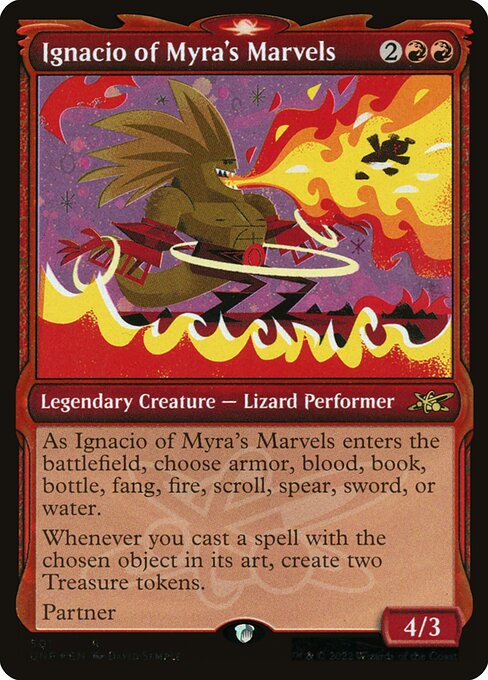

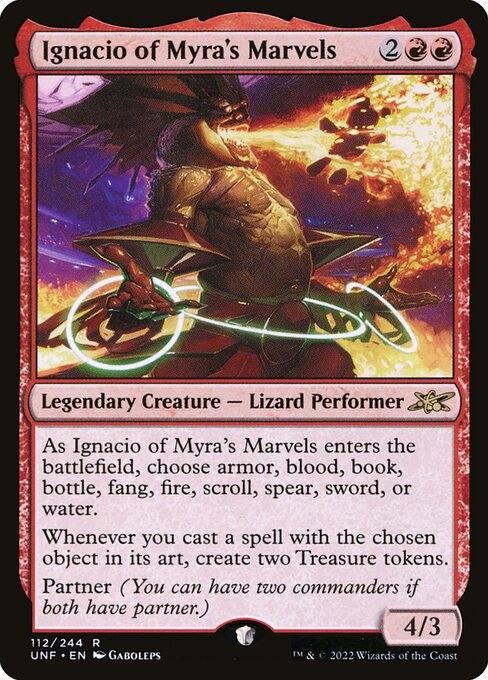
 0
0
 0.08€
0.08€
